I came too late. I was so excited to ride one of the ancient cable cars the city is so famous for. After watching a documentary about this system of cable cars that connected every corner of the city with the mines on the hills, I was determined to travel there, no matter what. When I arrived in summer 2024 modern gondolas had replaced he old “flying coffins”, they stopped running 2017.
I travelled with two friends and I had to do some serious convincing – they just did not see the charm of travelling half way across Georgia for riding a dangerous cable car in a mining town.
Home sweet home in Soviet Plattenbau
I had made a reservation via booking.com, there were not many choices. When we arrived at the address, a friendly lady waved from a balcony, the owner of the flat. Her family had moved to a more modern place and she was renting out the apartment built during Soviet times. The stairways were shocking, completely run down. My friends were laughing to cover their horror, but once we entered our new home all was well. It was like a time warp back in to the 60s, furniture and linen reminded me of places I had been to as a child. We had everything we needed, beds, kitchen and a warm quiet place.
History of Chiatura’s rope roads
Without the discovery of manganese in the late 1800’s Chiatura would not exist. By 1905, Chiatura’s mines accounted for 60% of global output. Some 4,000 workers toiled for up to 18 hours a day in mines set along the cliffs that rise above the city. But it wasn’t enough. In 1954-56 Stalin had the “rope road” that connected every corner of the town in the valley with the mines on top of the steep cliffs. This helped the miners get easily and quickly to their work instead of climbing the hills, shorten the communte and increase productivity. It outlasted the Soviet Union.
Some of the original stations built in the 1950s-70s have been demolished. Others lie abandoned, and others still are barricaded off while reconstruction work takes place.
The old cable car network is considered as an endangered heritage site and will eventually be restored. Two of the oldest cable cars are now under reconstruction and will relaunch in 2024 or 2025.
Since 2021 the gondalas serve as a mode of transport for the people of Chiatura, since the city has spread high up into the hills. The fours years between the closure of the old one and the opening of the new cable car line, people were taken up and down the hills in mini busses.
Riding gondola every which way
We rode the three lines all afternoon, each taking us to a different neighborhood up in the hills. The first line was really short and we immediately went back down, since there was nothing to see.
Sanatorium Cable Car stop
This line is the best for viewing the valley, the city and the surrounding hills. It is close to an old sanatorium, a big fairywheel and what looked like a deserted open-air theater, which turned out be an abandonded Pioneer Palace.
Mukhadze Cable Car Station
We got off the this station and strolled around s bit, the apartments blocks all looked pretty dilipitated, one seemed to have been covered with metal plates that turned rusty and kept peeling off.
We bought snacks in a small stores, the elderly lady who ran it was sitting under a vine bower with her friends and kept an eye on her shop. Every time I customer entered, she would leave her friends and walk over.
Downtown Chiatura
The city is queezed in a valley and it divided by the Kvirila River. We walked the entire center, which has the mixed architecture of so many post Soviet cities.
Eating out in Chiatura
It was really difficult to find a place to eat apart from a fast-food pizza place. We had almost given up and were heading back home to eat some bread and cheese, but I did not want to give up that easily and noticed a balcony on the first floor of what was called Newland Hotel.
The menue was in Georgian, but ONE person among all the guests spoke a few words of English, he turned in a hero as the evening passed on, people padding his shoulders and praising his English skills.
We had an excellent meal and an unforgettable evening
Riding the once a day train from Chiatura to the lowlands
Strolling around the city we came across a railroad station which was abandoned, what made me suspicious was a super tiny store at the end of the tracks. Why would there be a shop at such an dire place? On the door stuck a piece of paper given the time of departure for the only train leaving Chiatura. We could not believe that any train would ever come here, but gave it a try.
In 1895, a narrow-gauge railway was constructed to connect Chiatura and Shorapani, a small town just outside Zestafoni south in the lowlands. Trains carried the manganese from the mines down to Zestafoni, where a huge plant was built in 1933 to process the raw materials.
When the Chiatura-Shorapani train stopped running, the station building was virtually abandoned. It’s in a terrible state, but the sheer seize tells of glorious times. I especially love the shape of the shelter that runs the length of the platform.
The train line runs through lush steep valleys and deep gorges with the vegetation almost touching the train. It was going super slow which we loved, marvelling at the peaceful scenery.

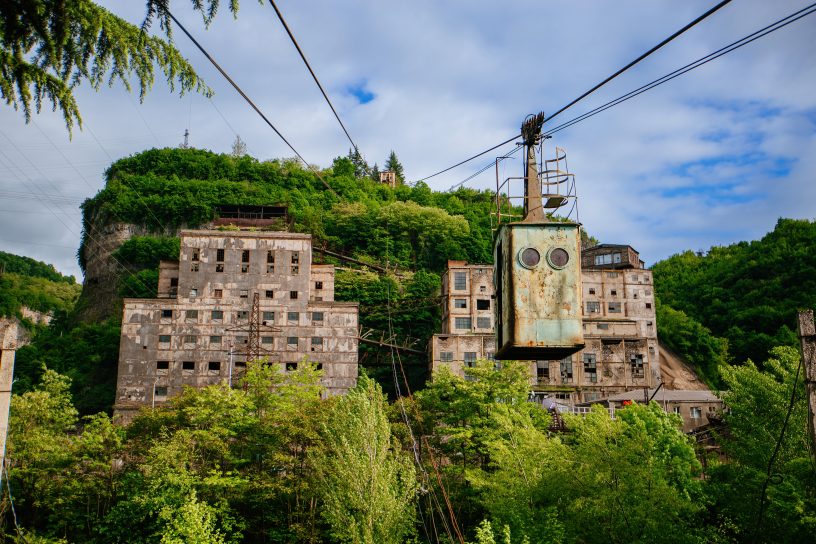
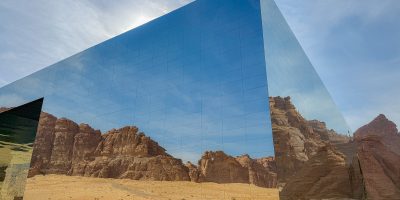


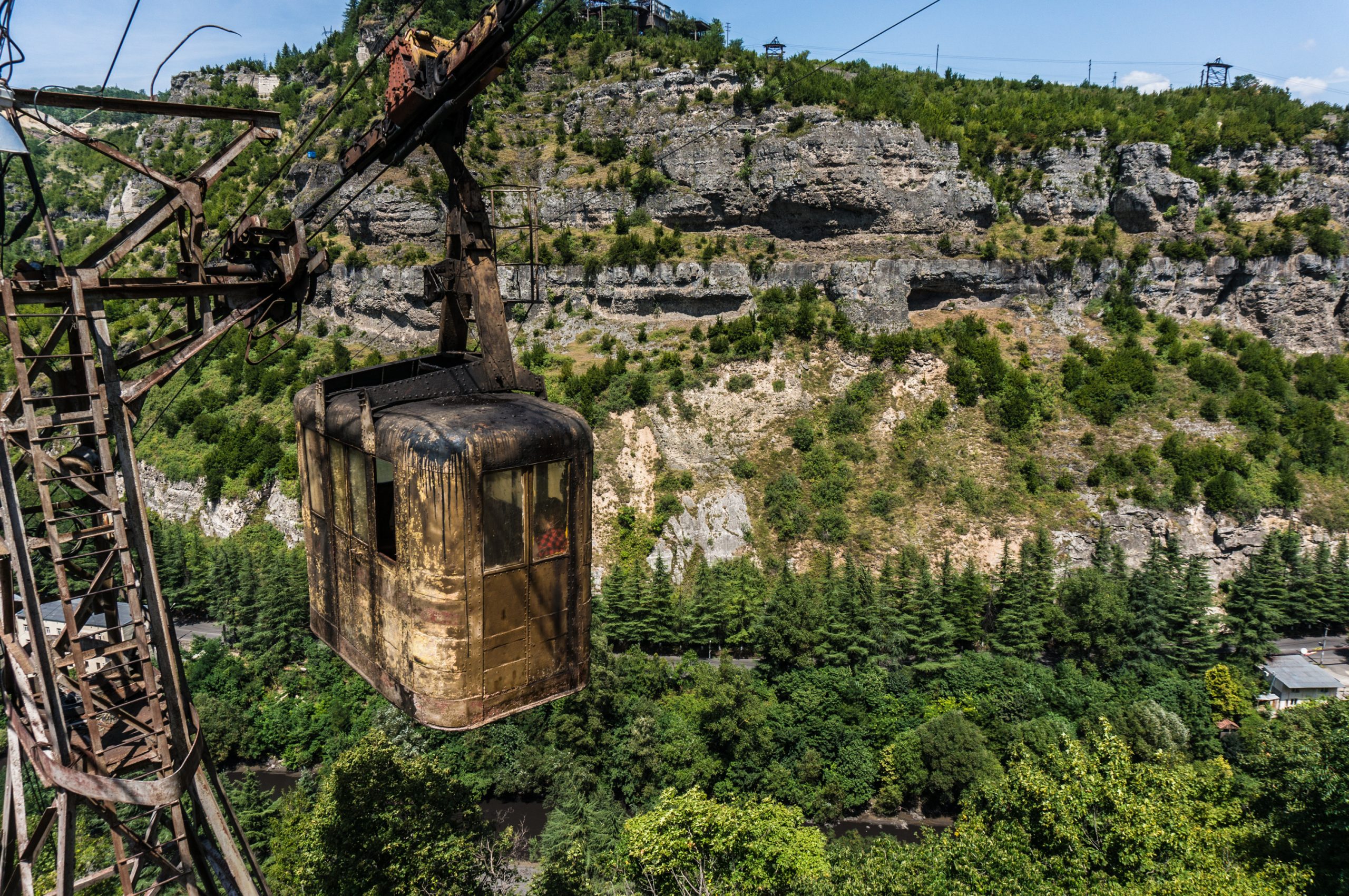
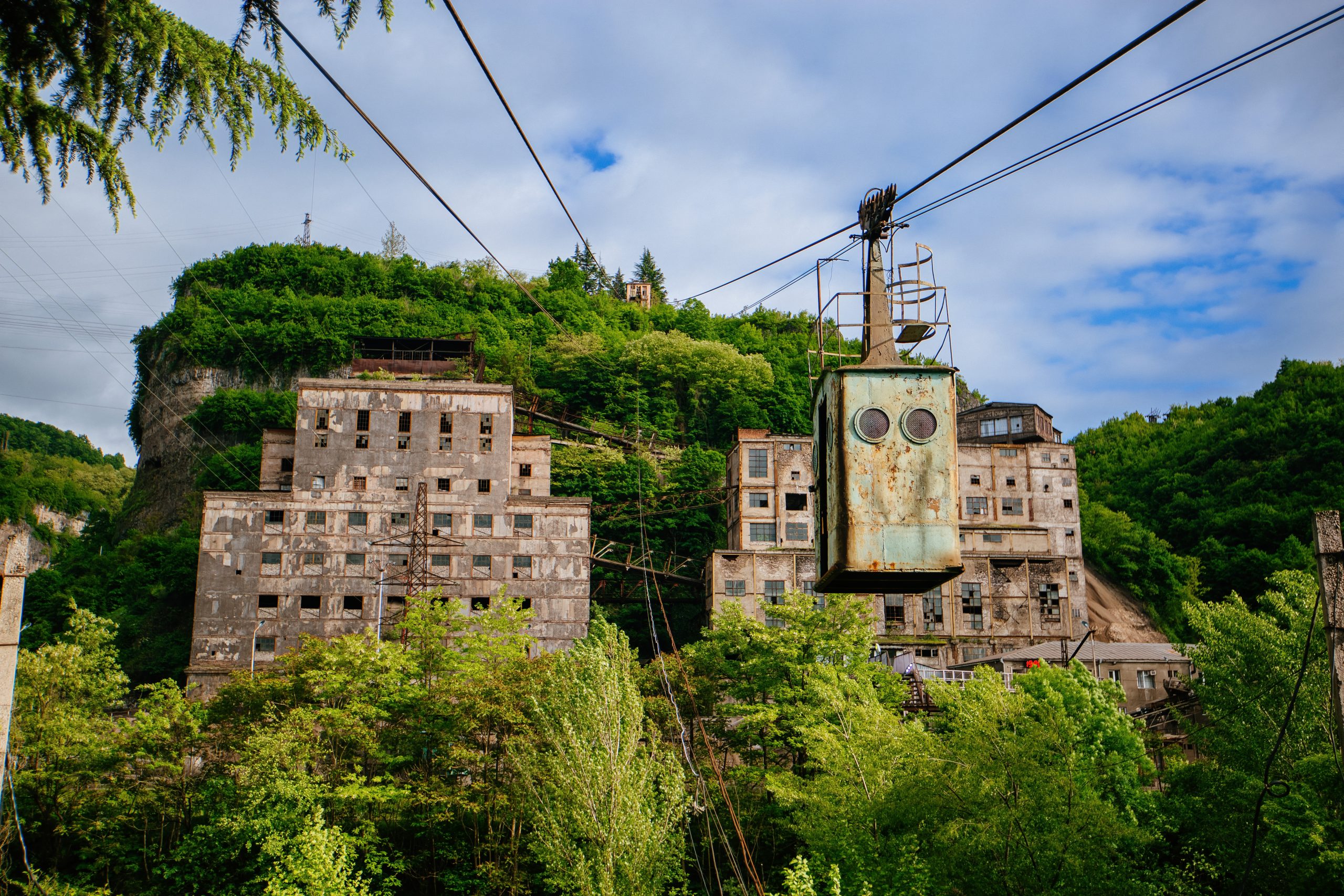
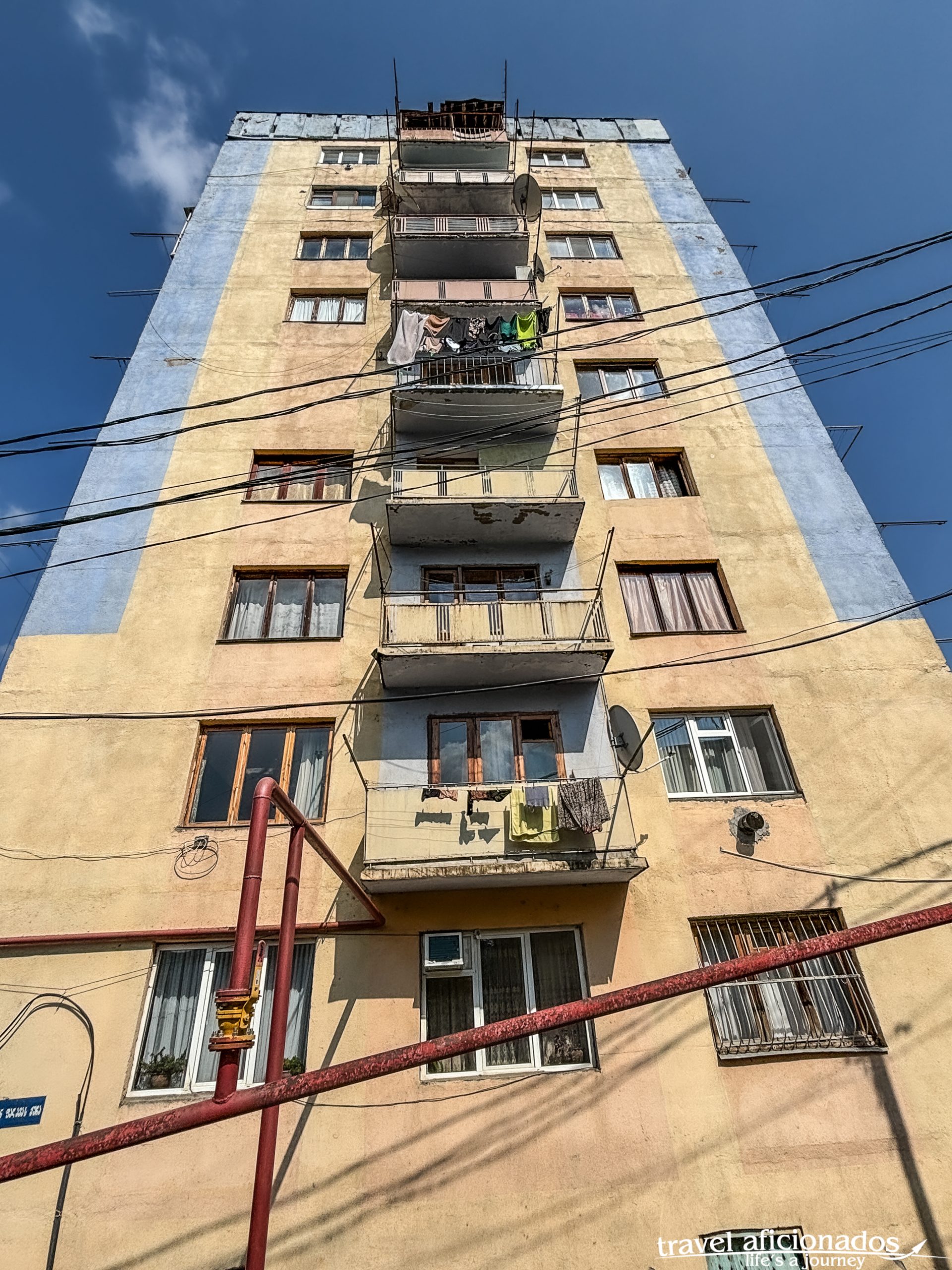
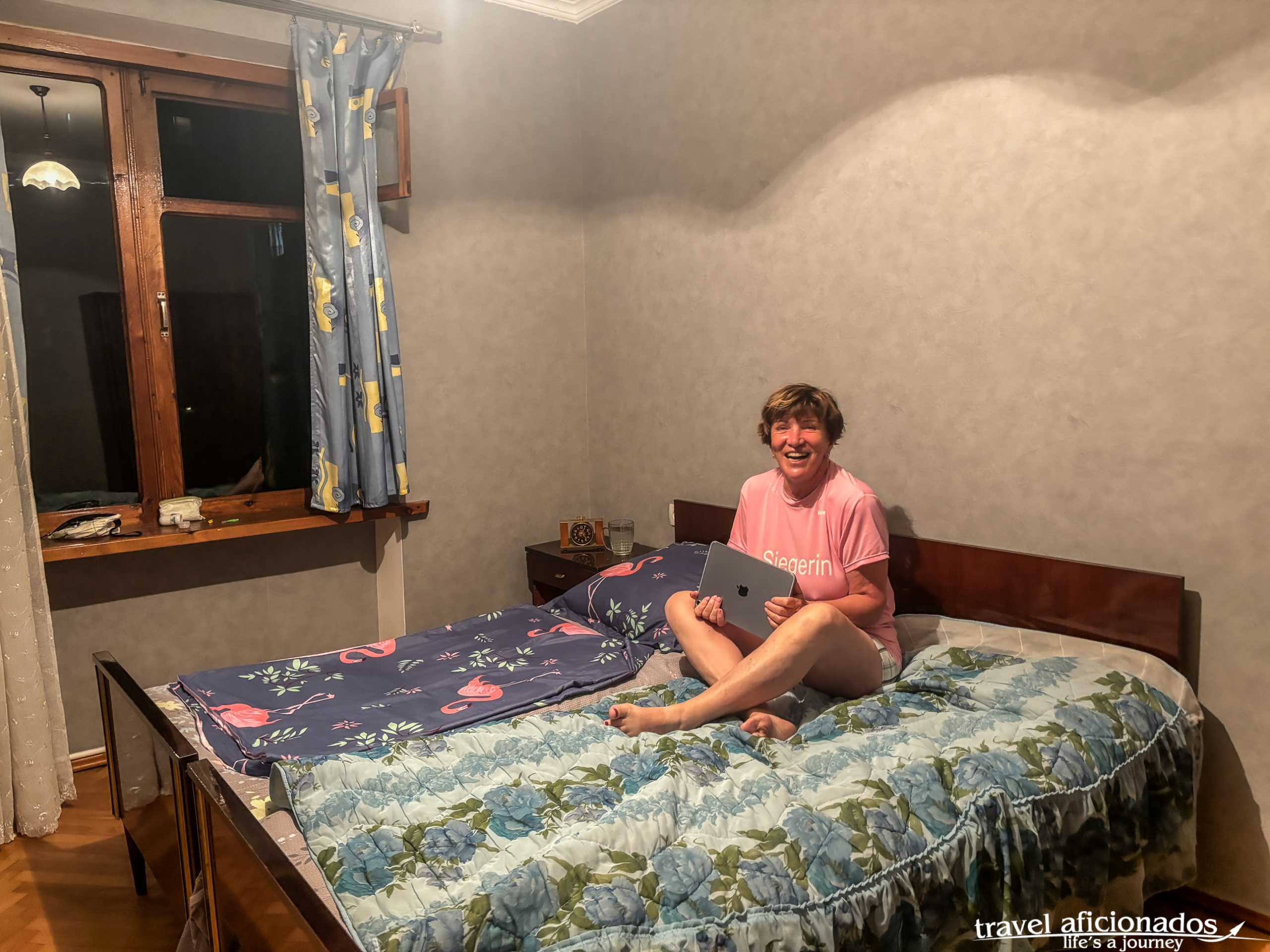
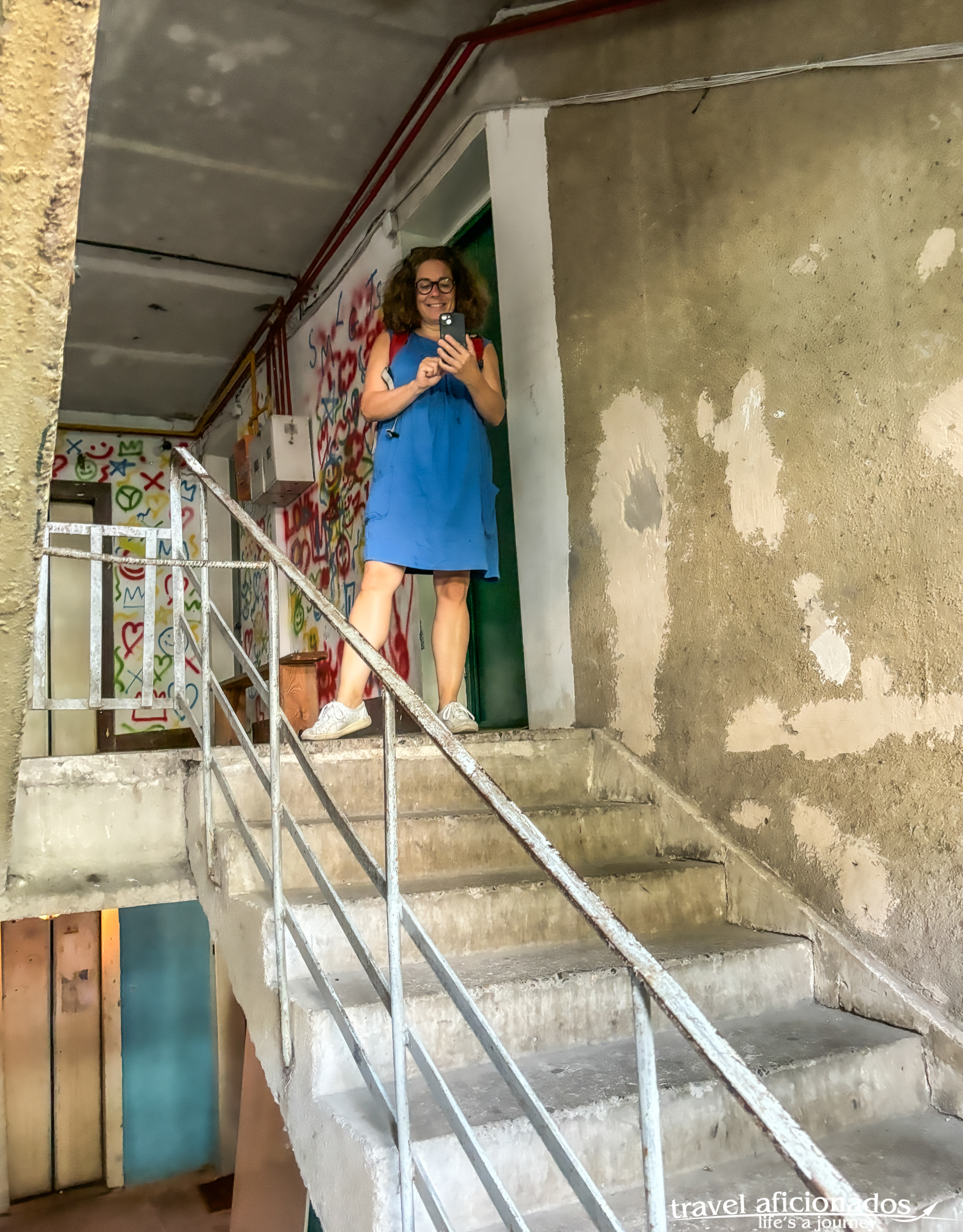
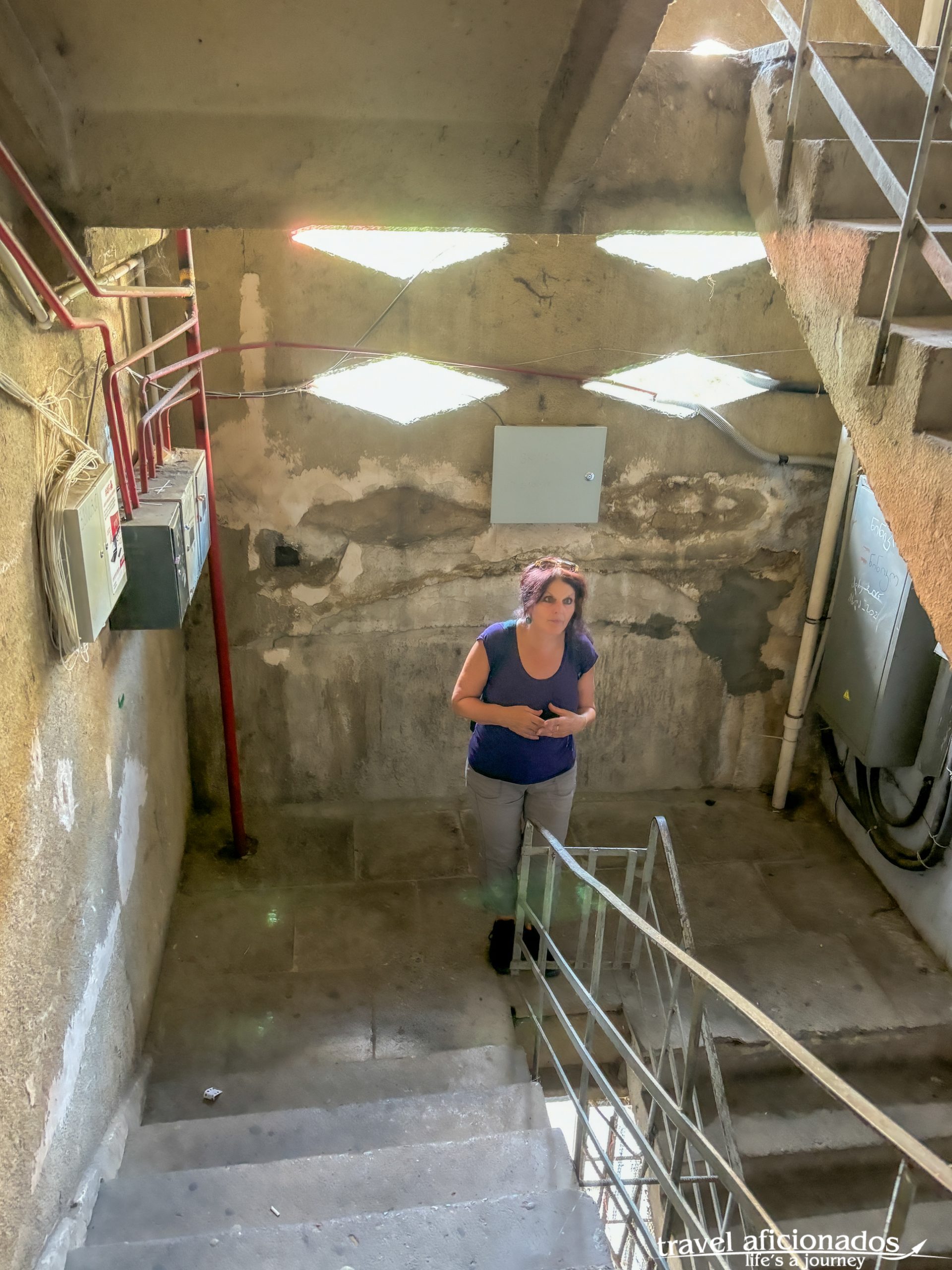
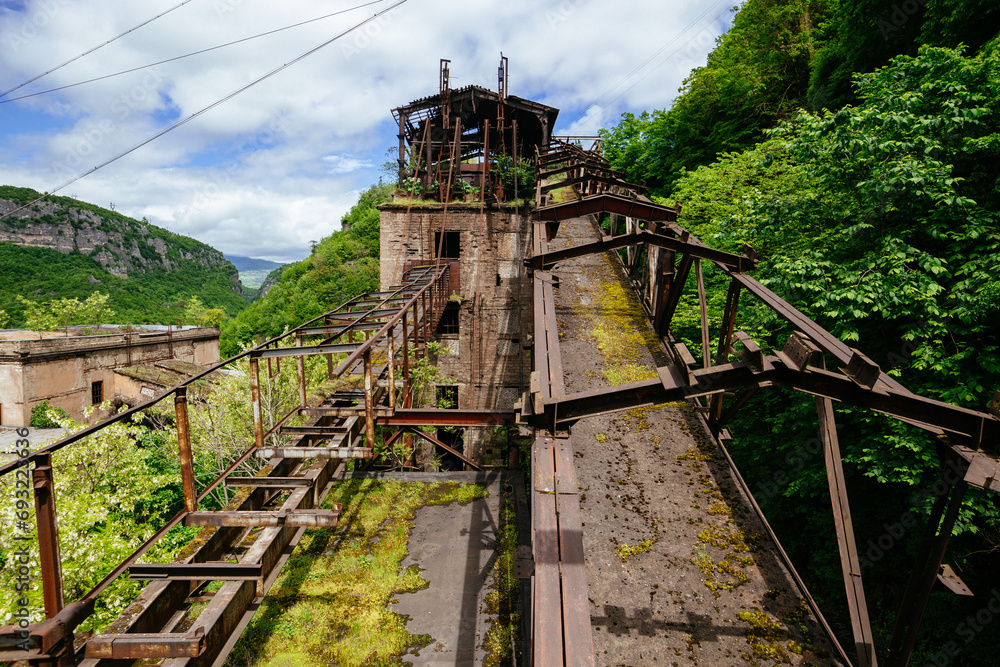
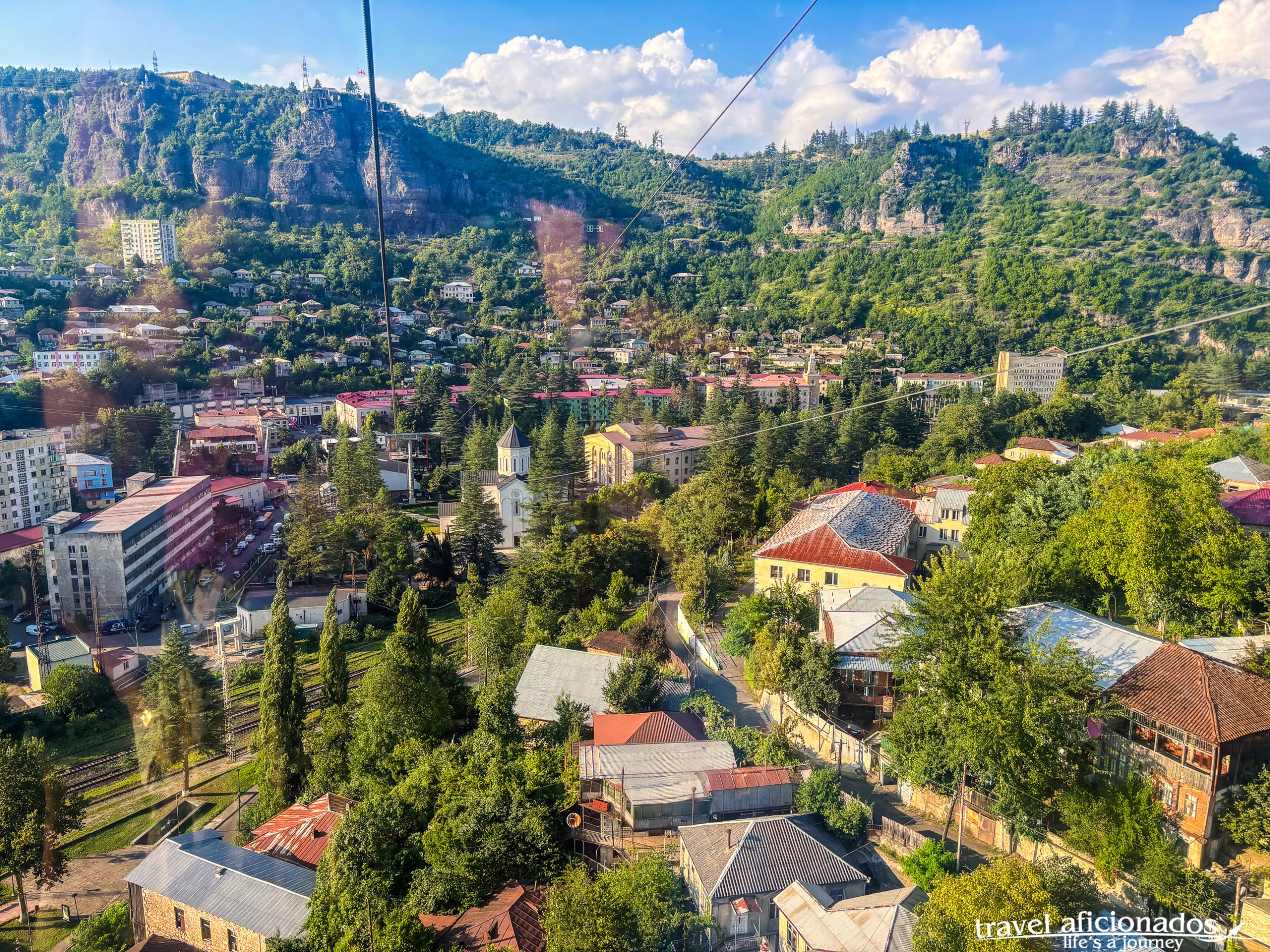
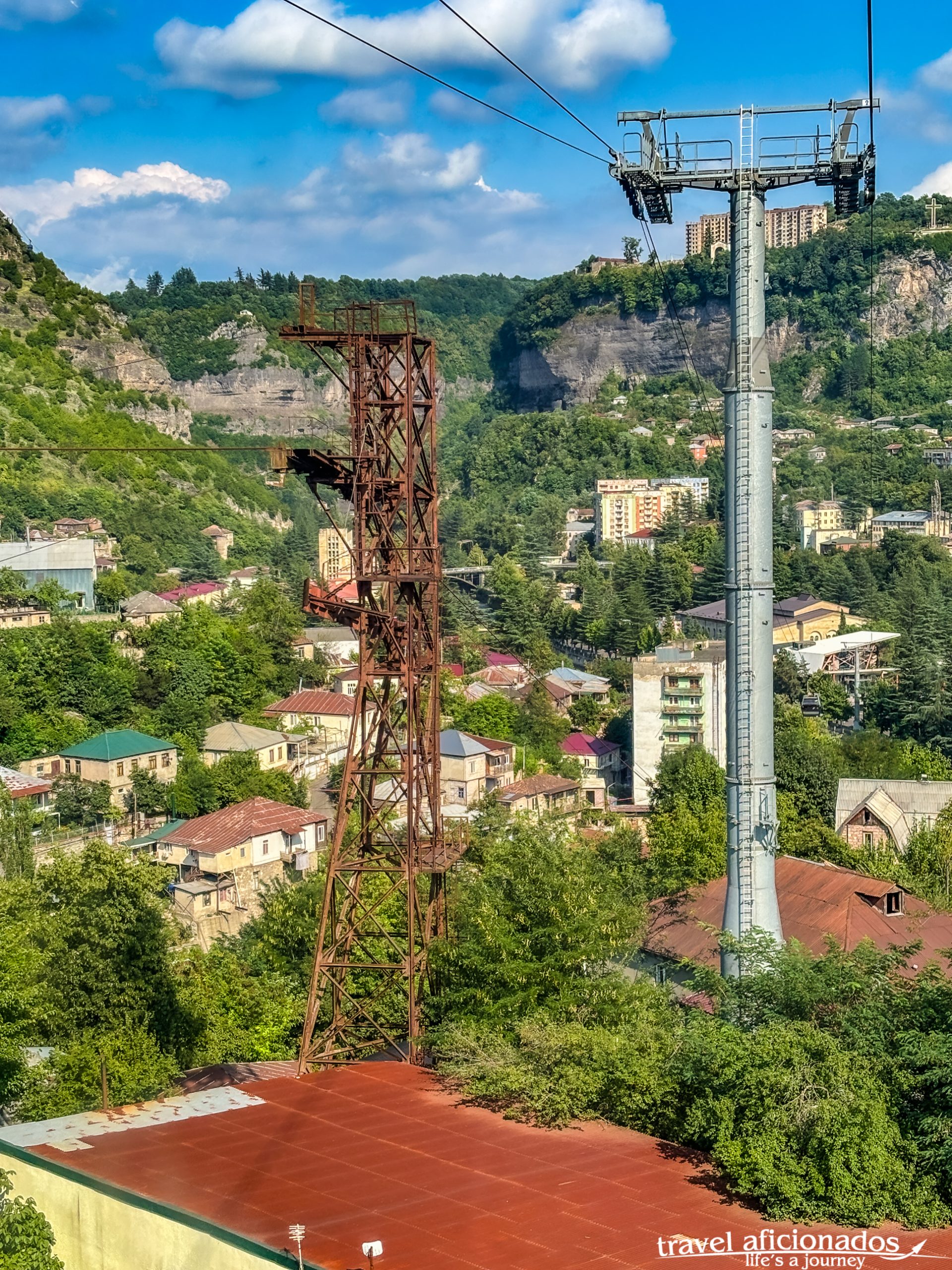
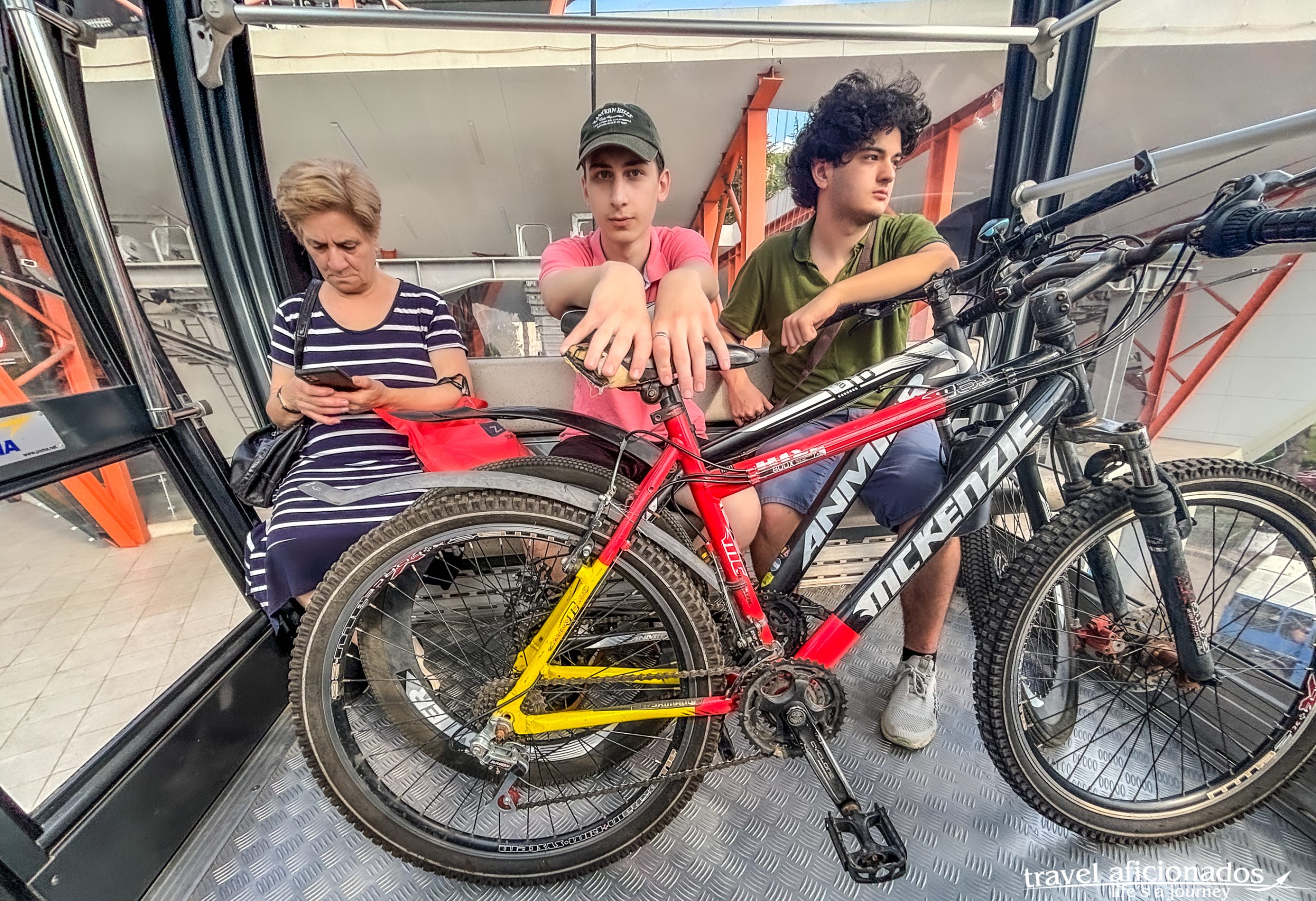
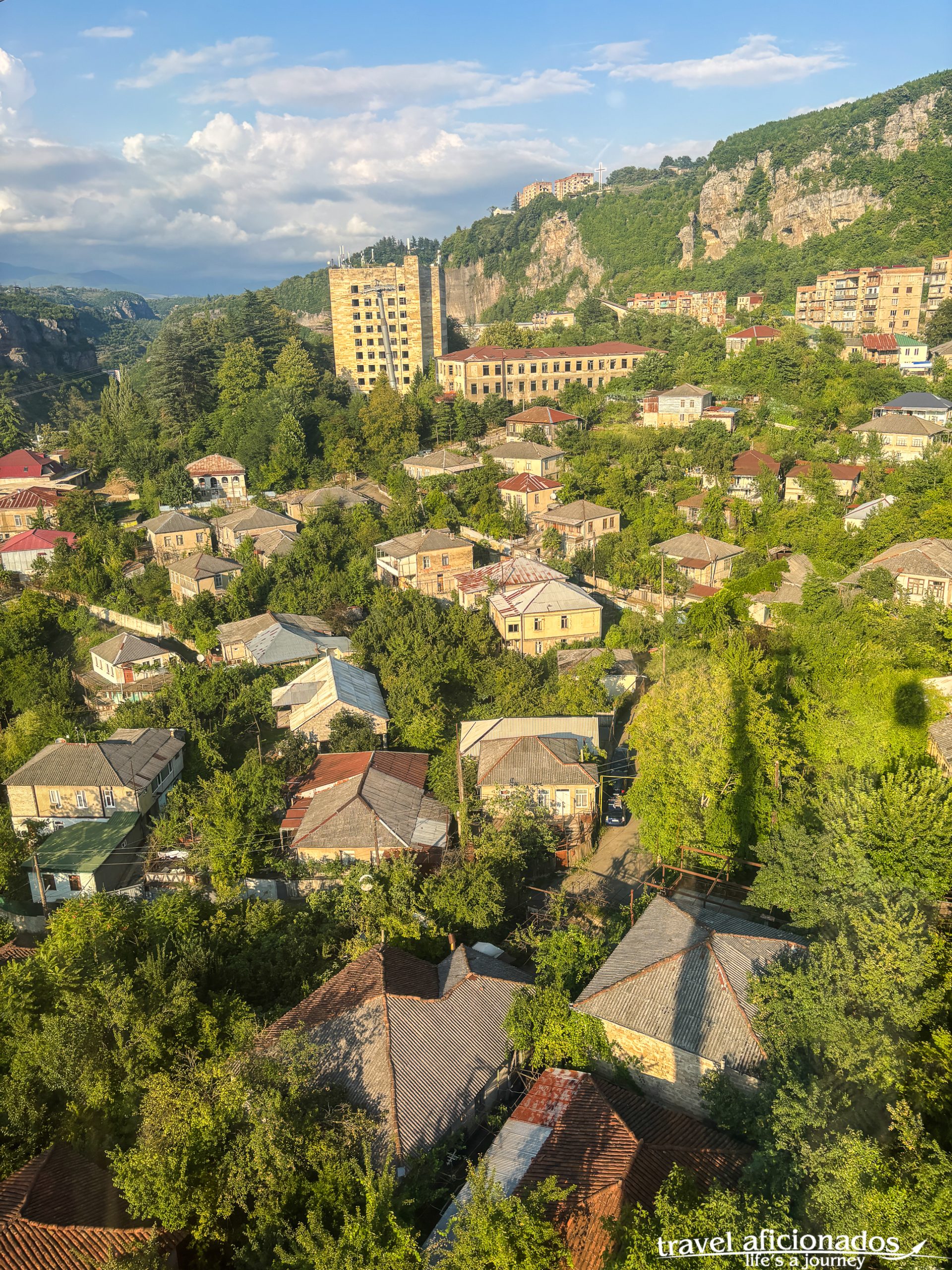
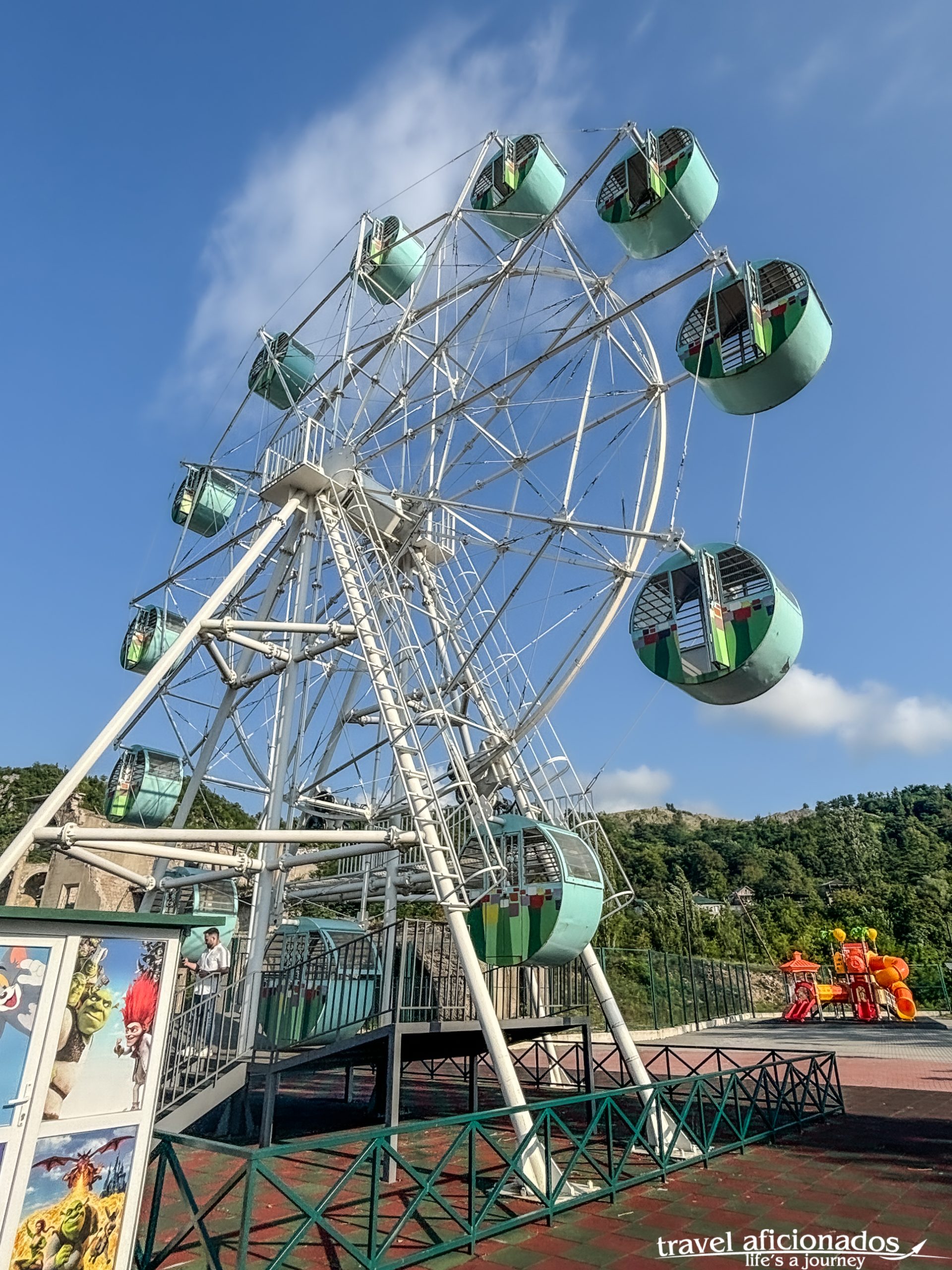
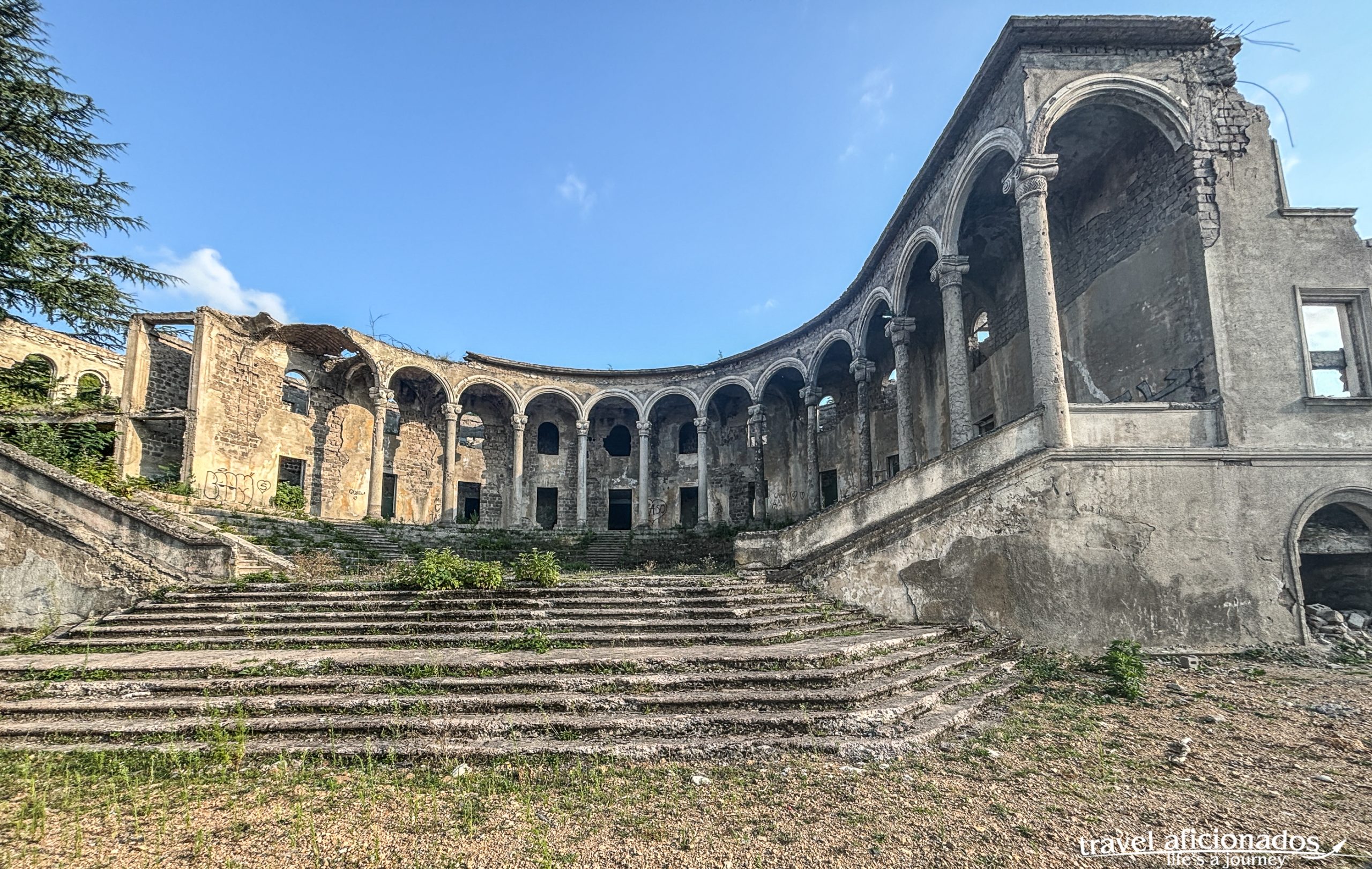
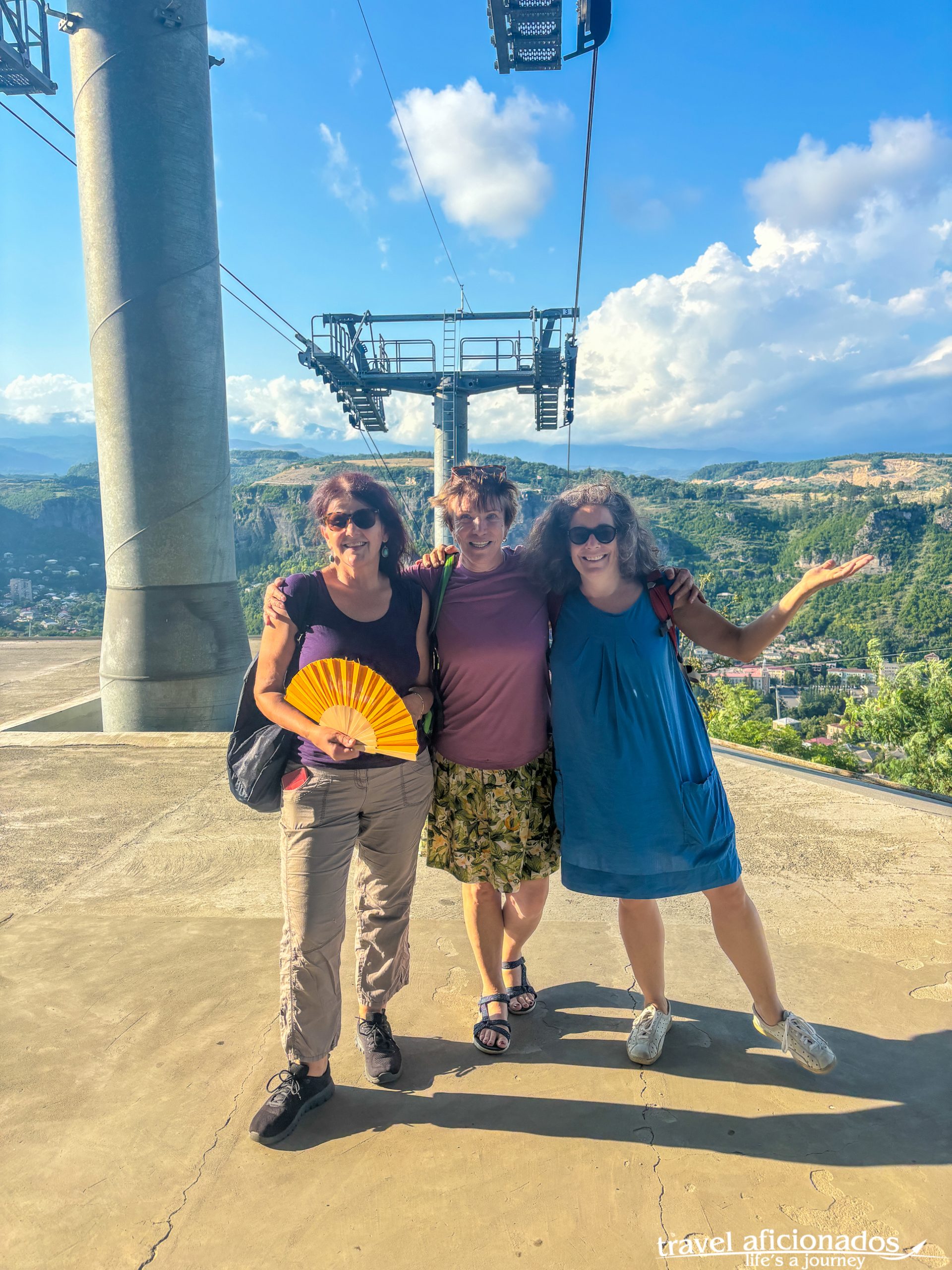
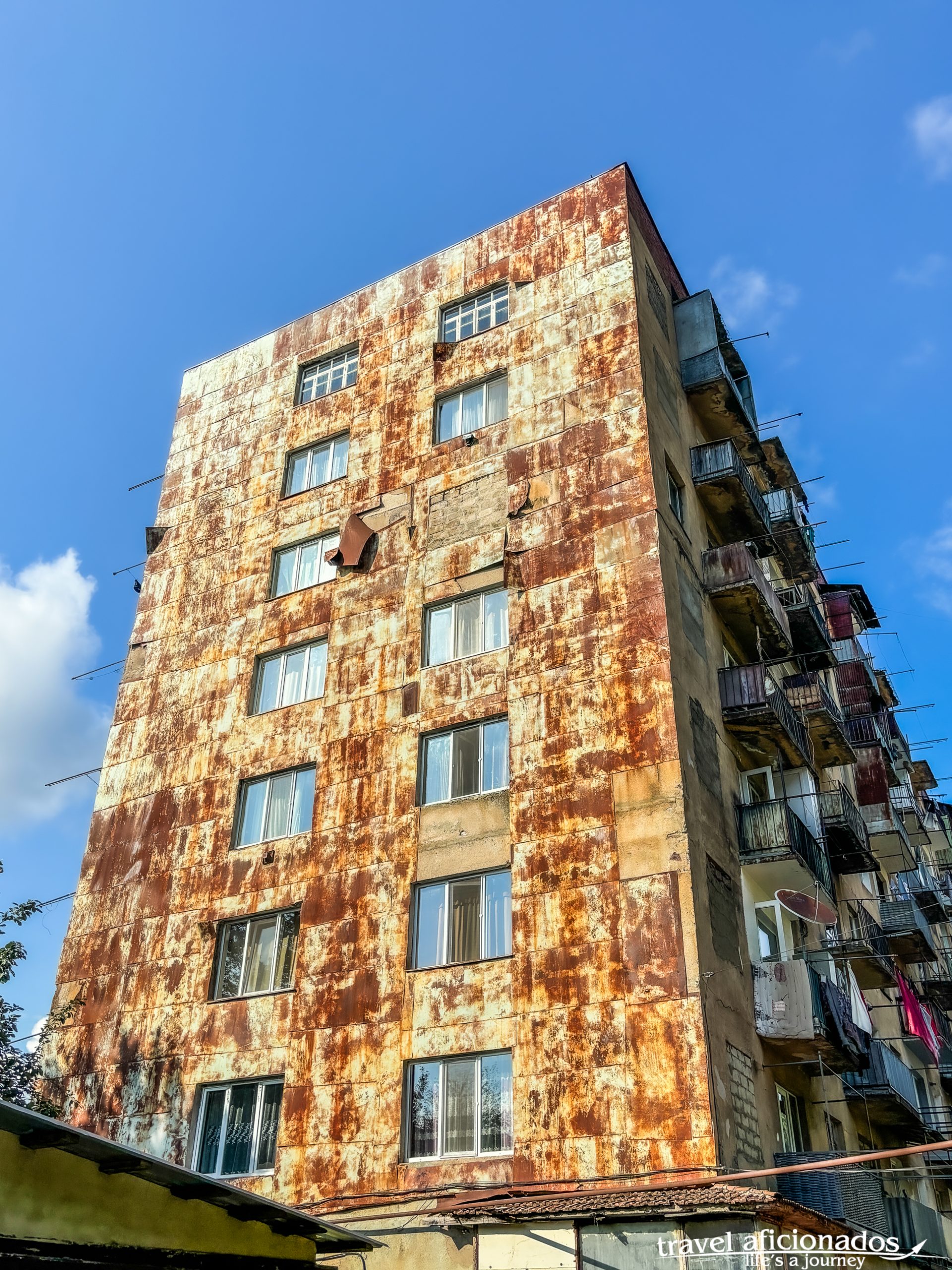
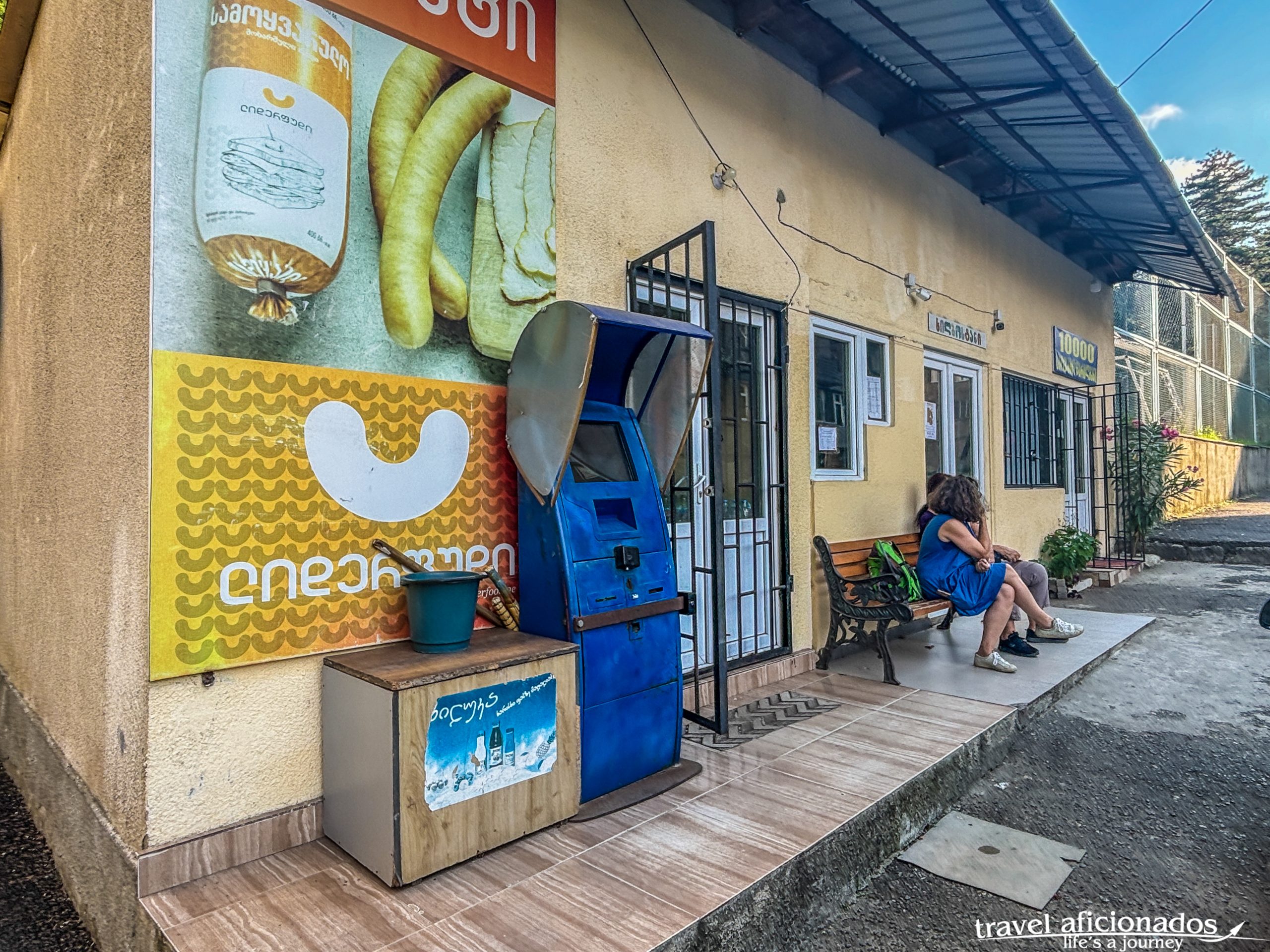
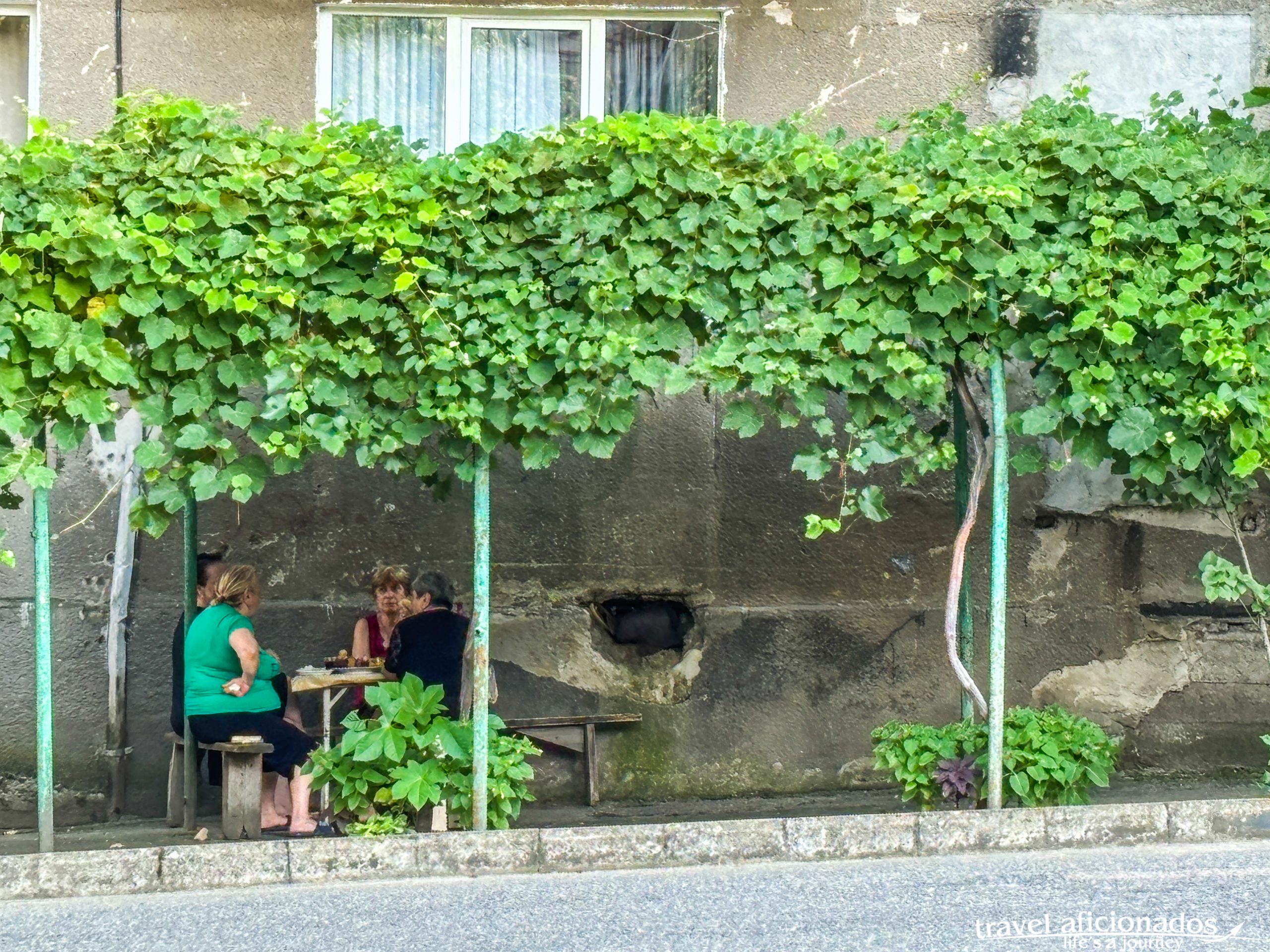
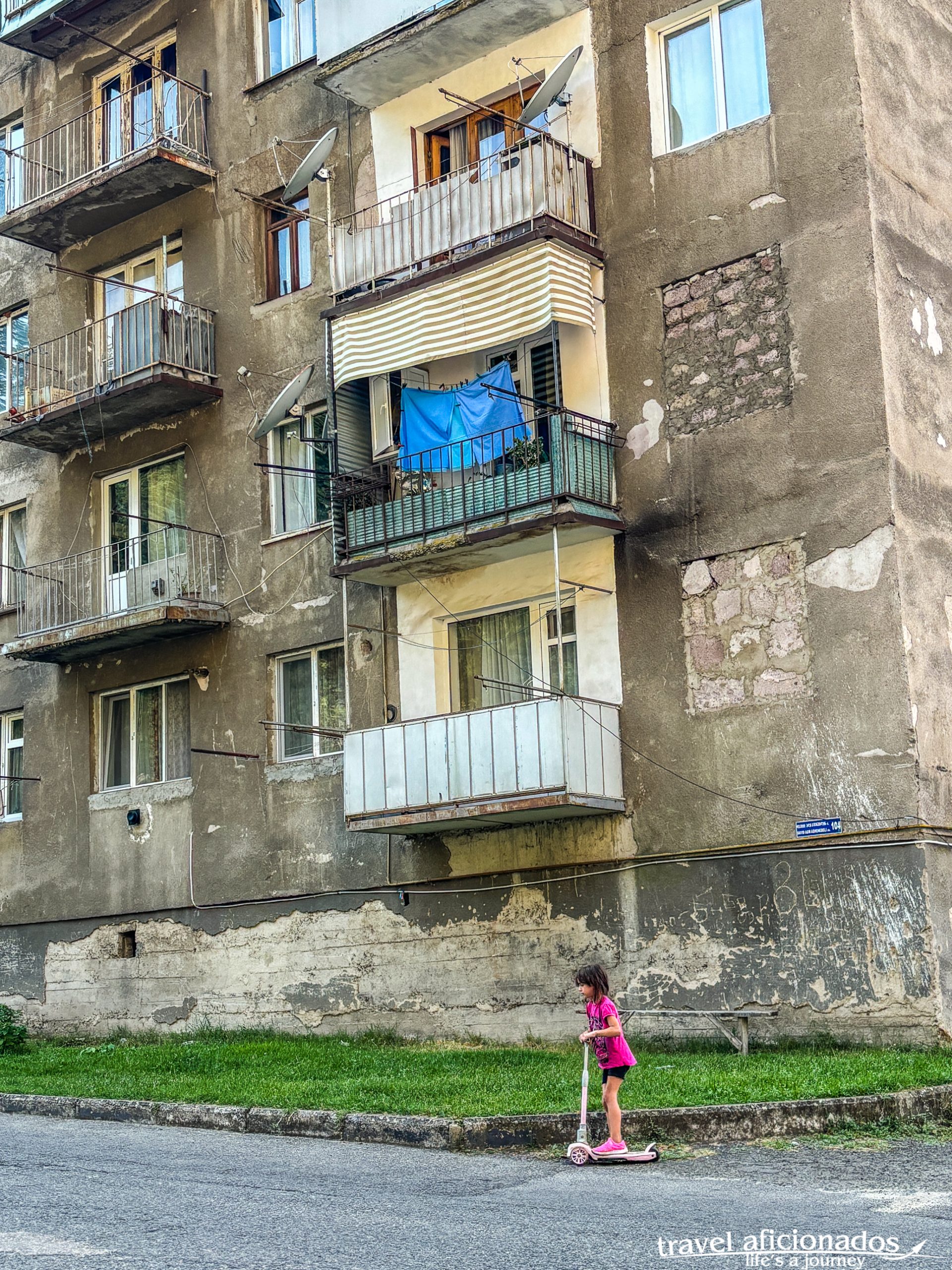
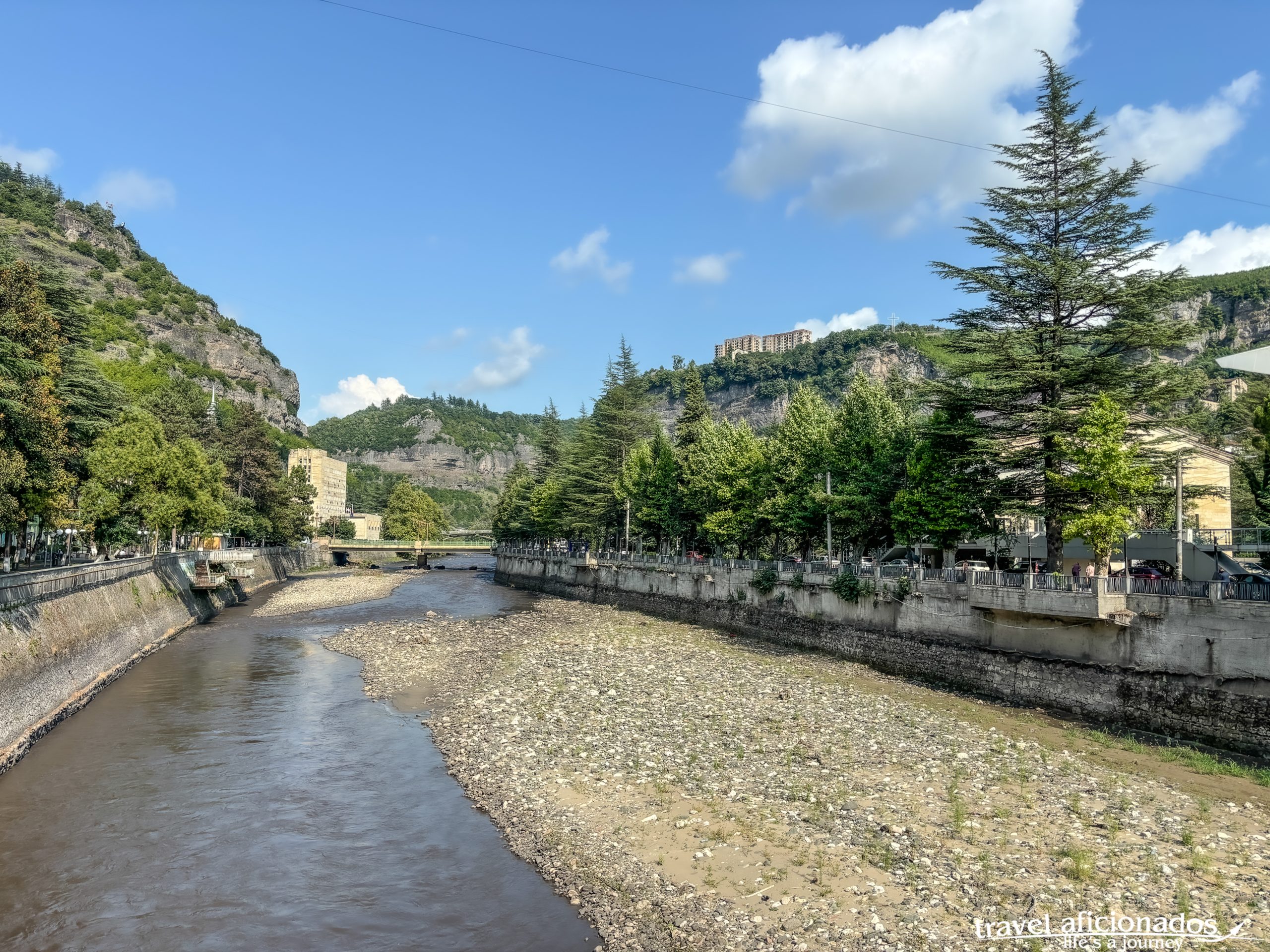
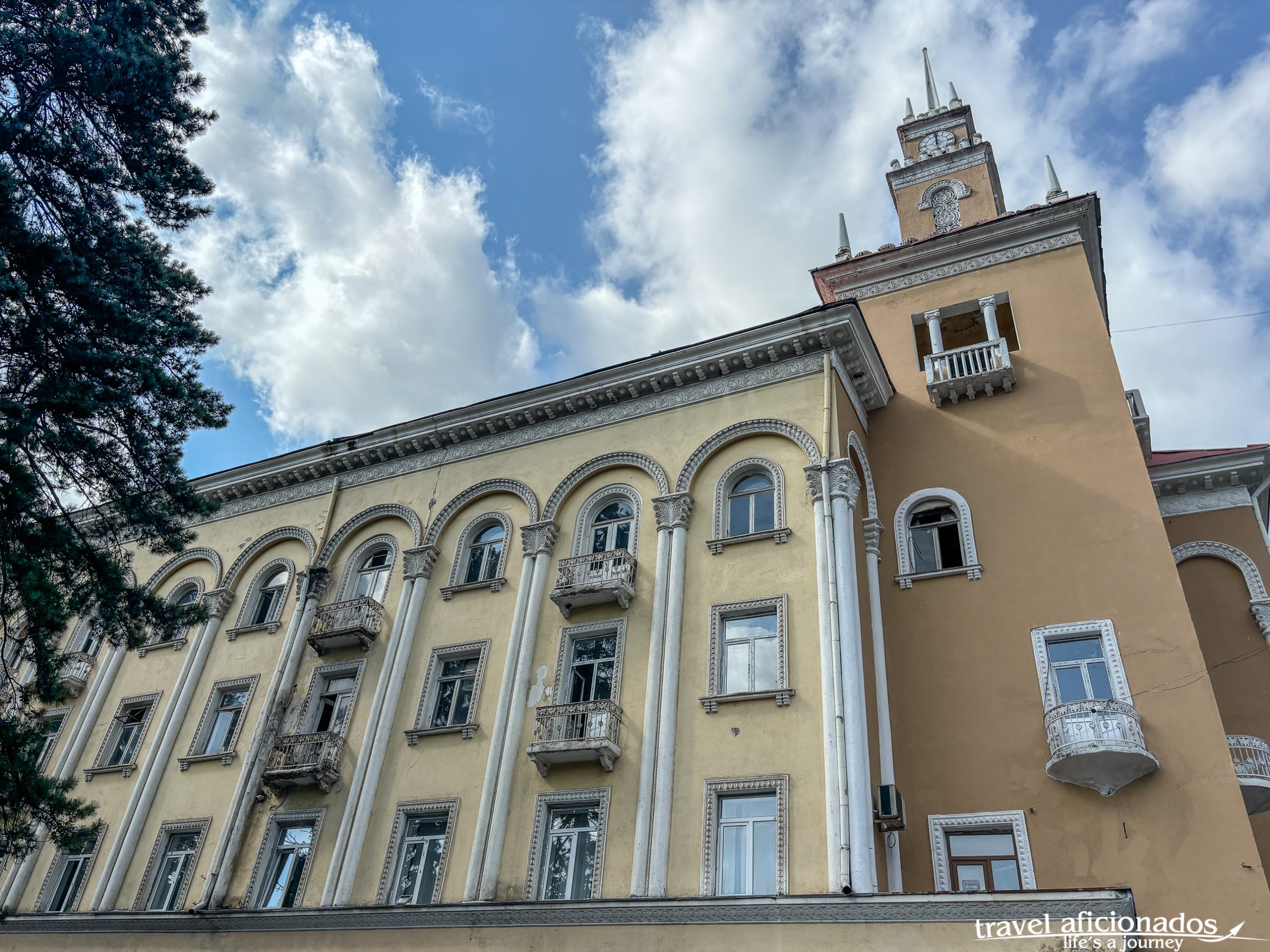
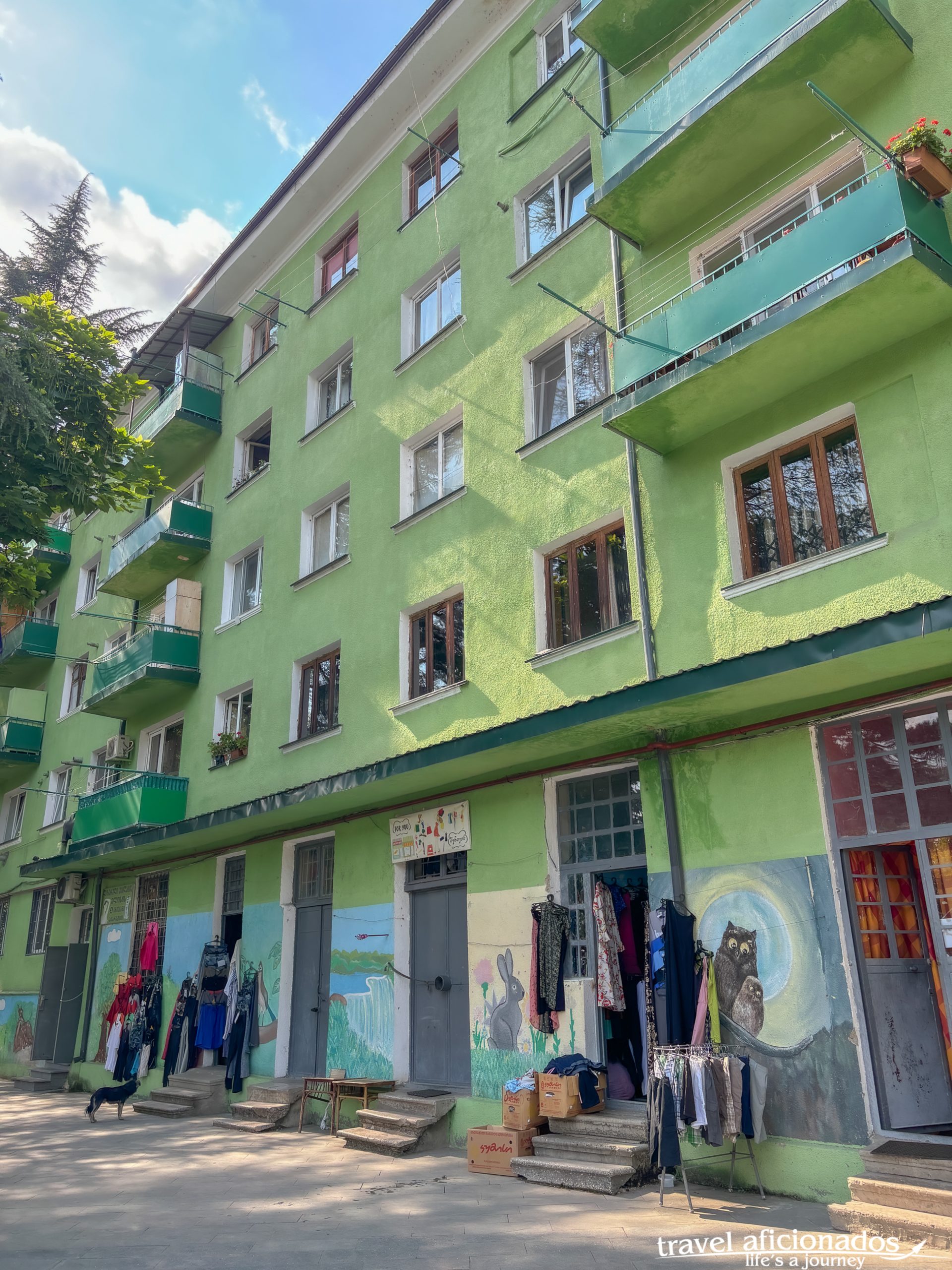
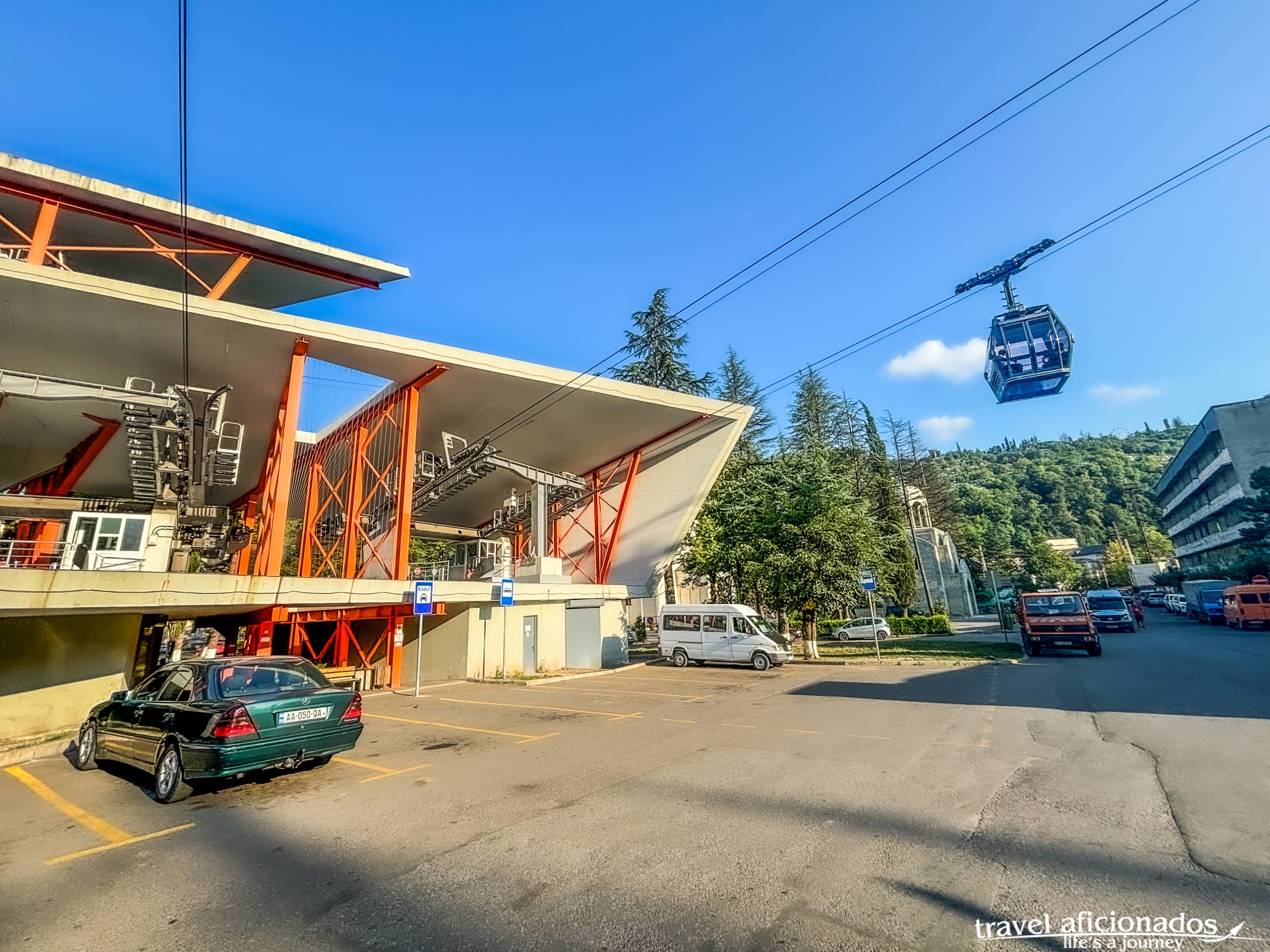
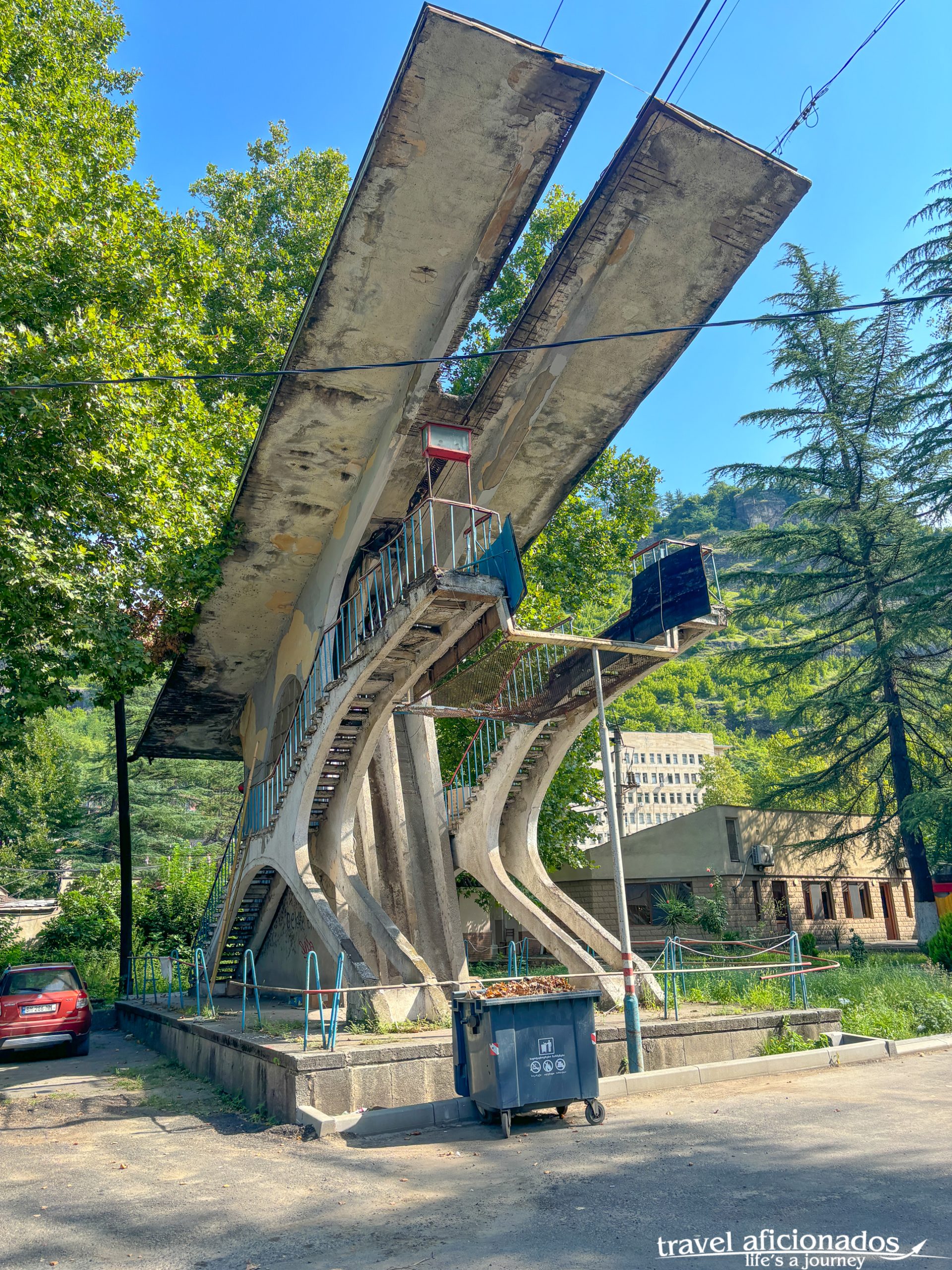
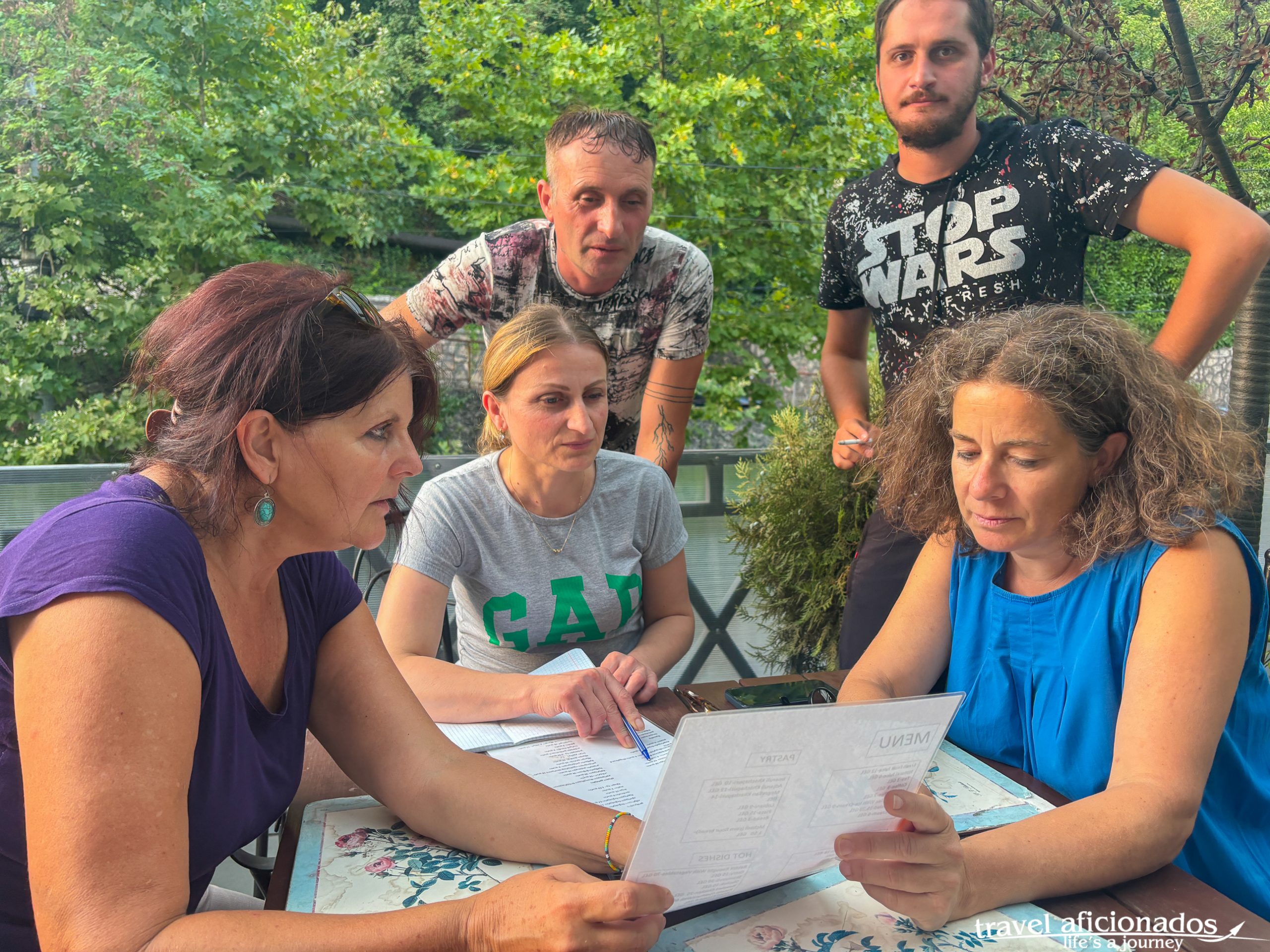
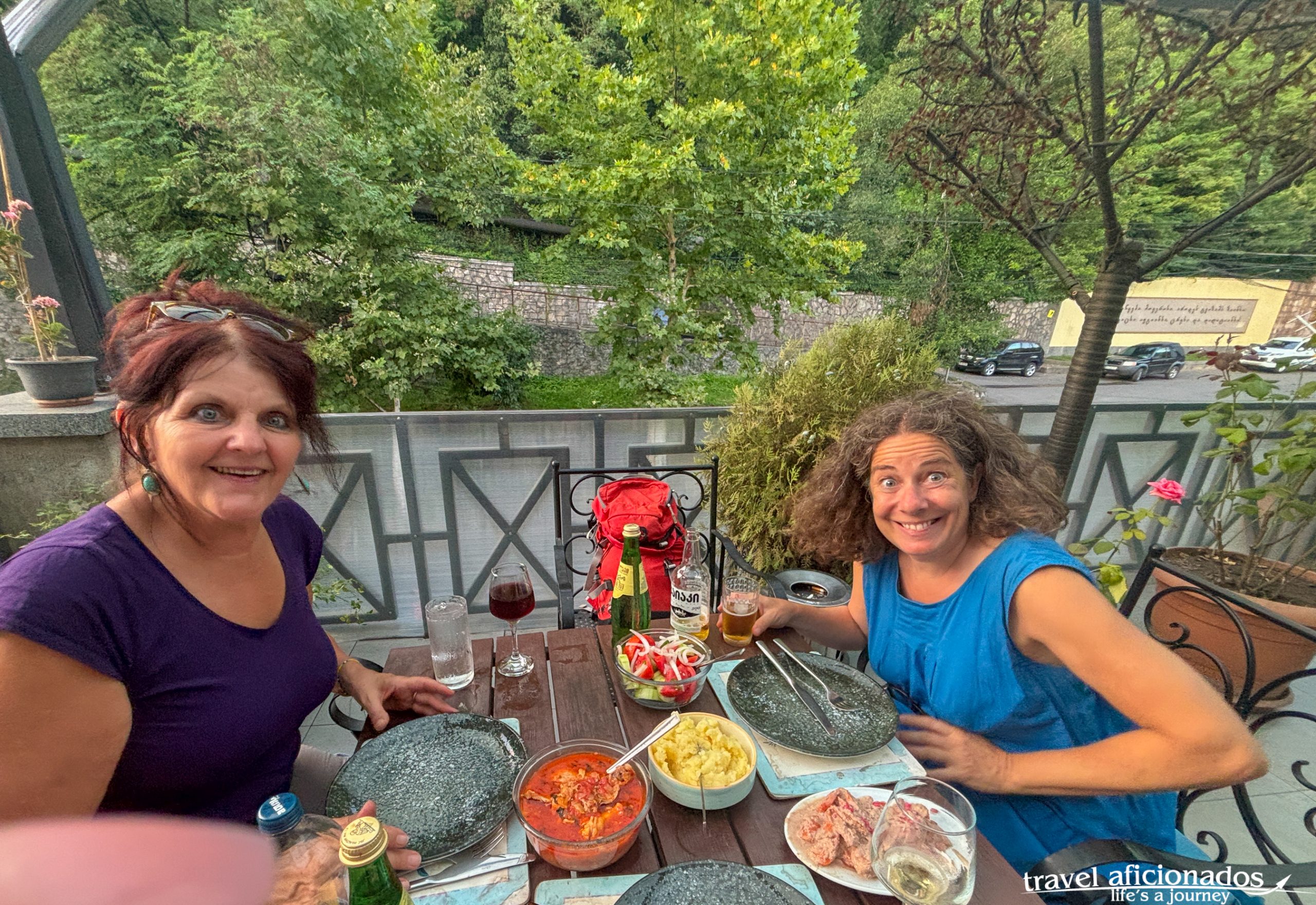
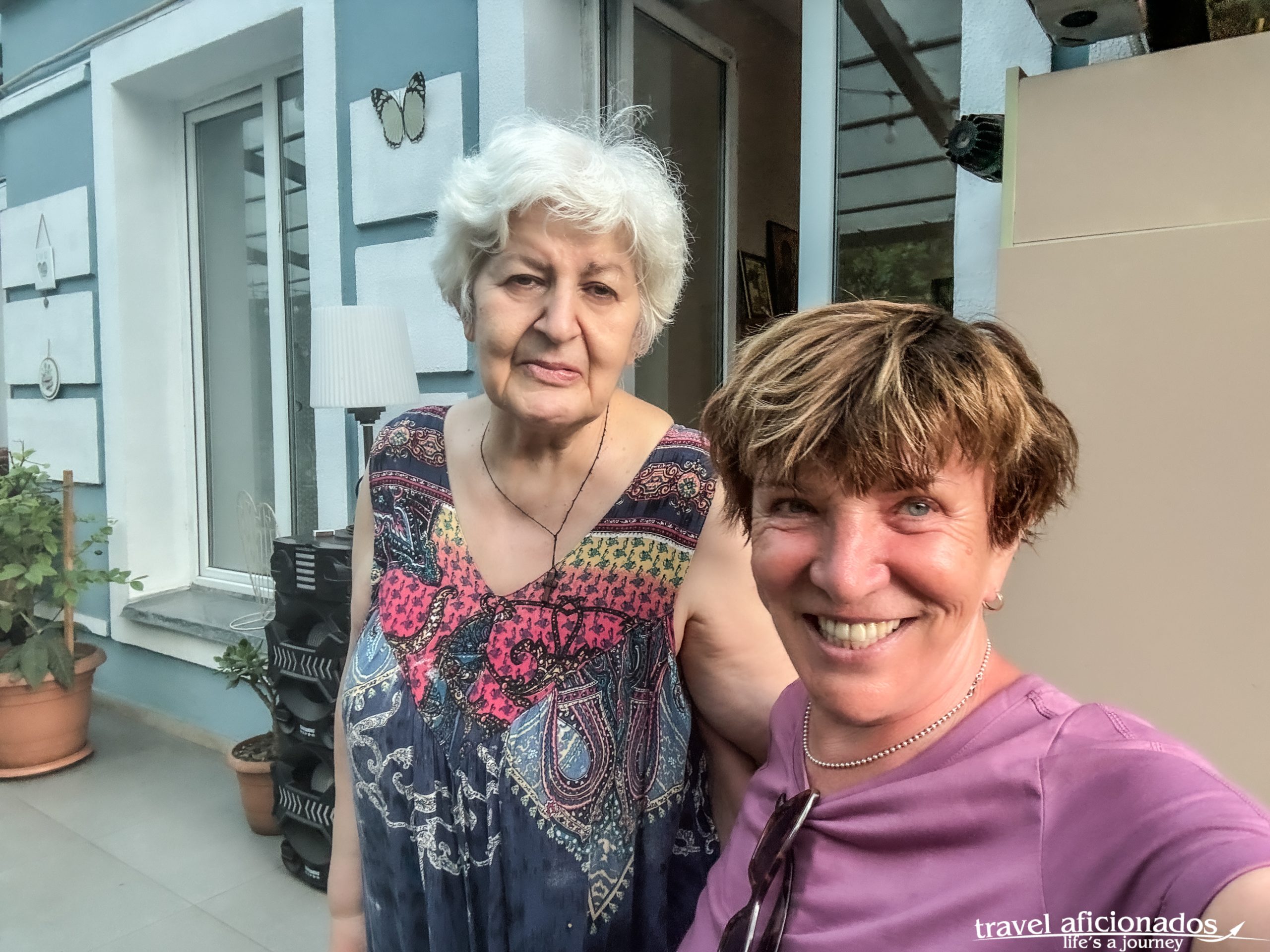
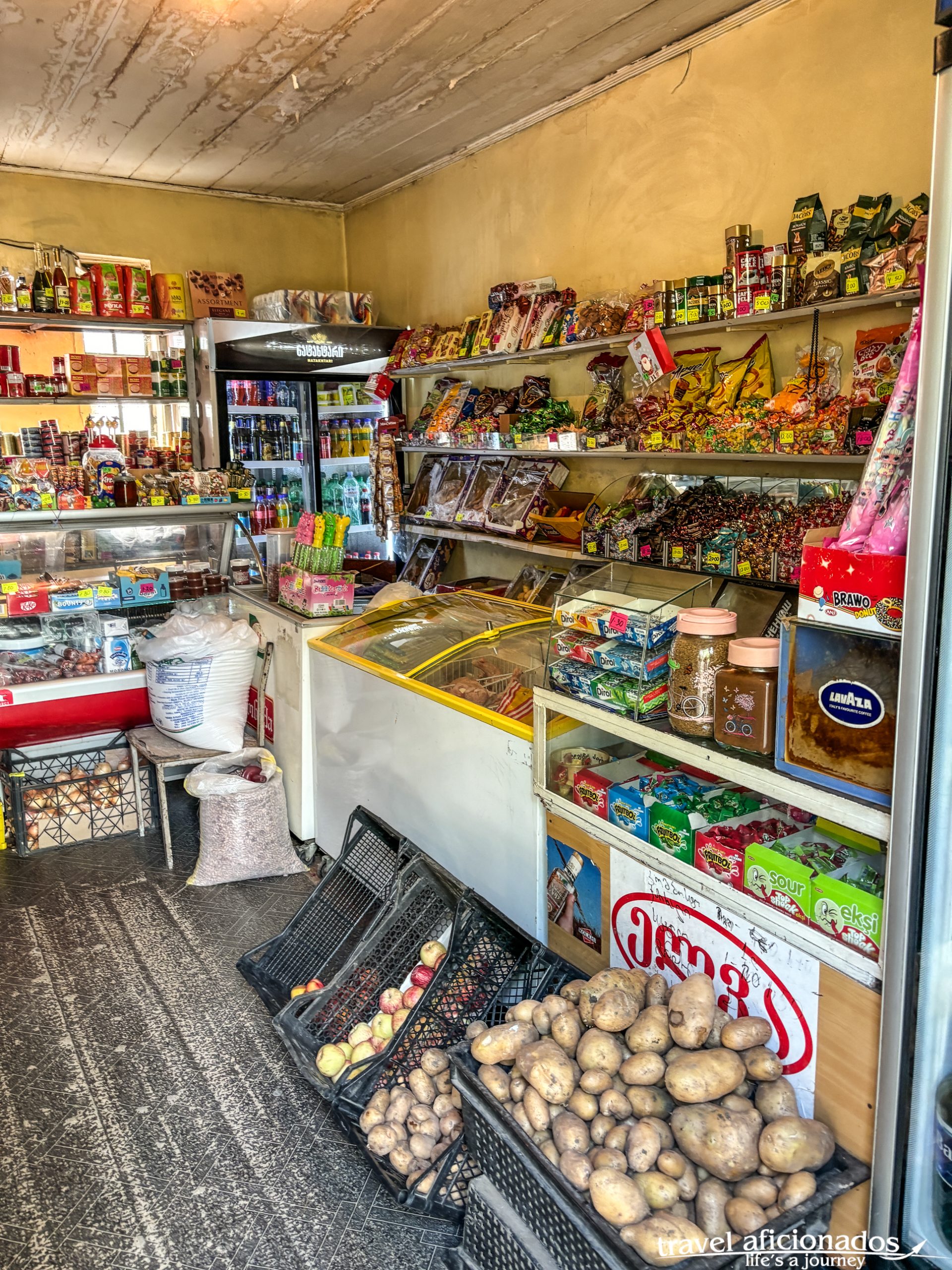
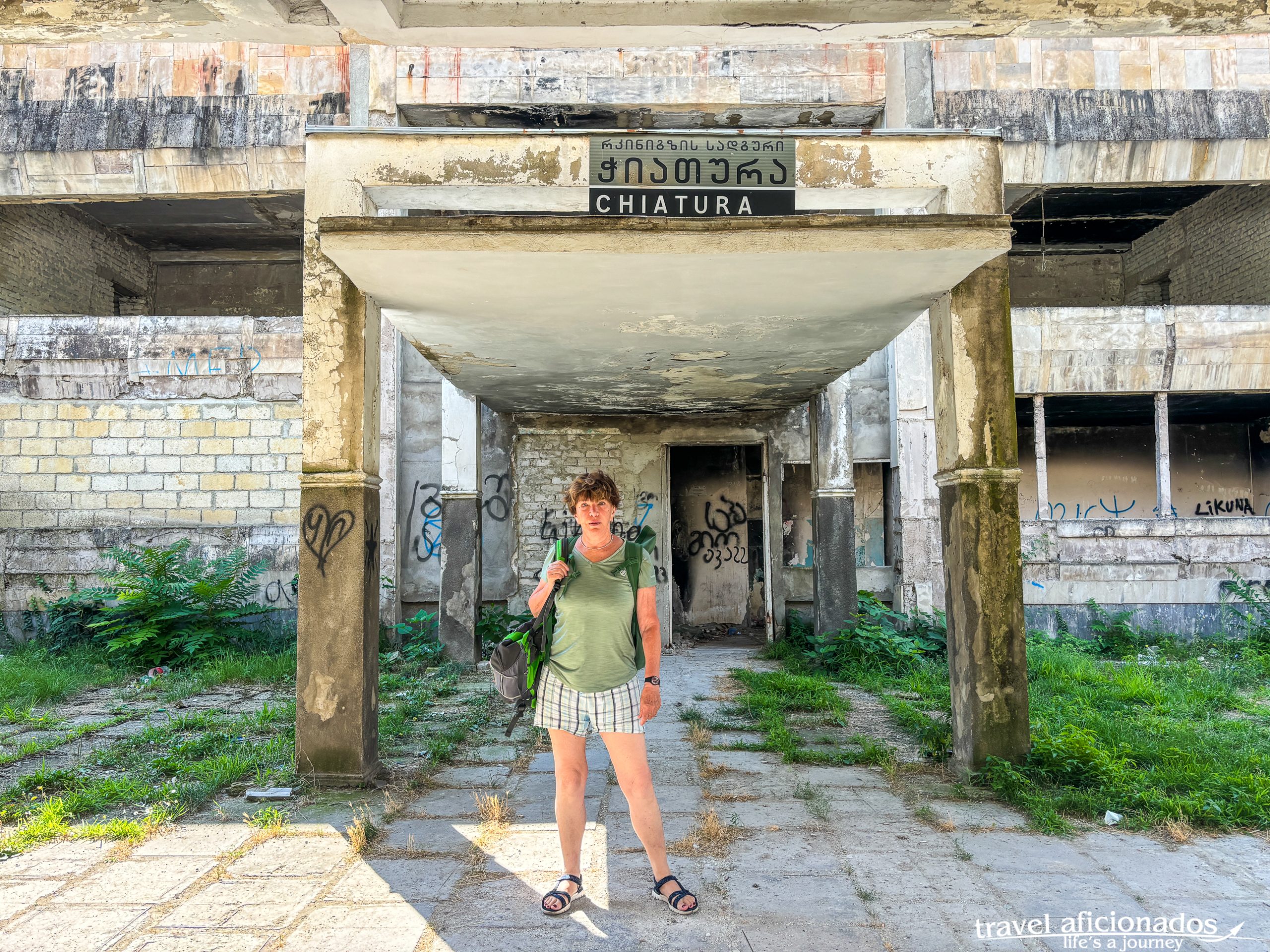
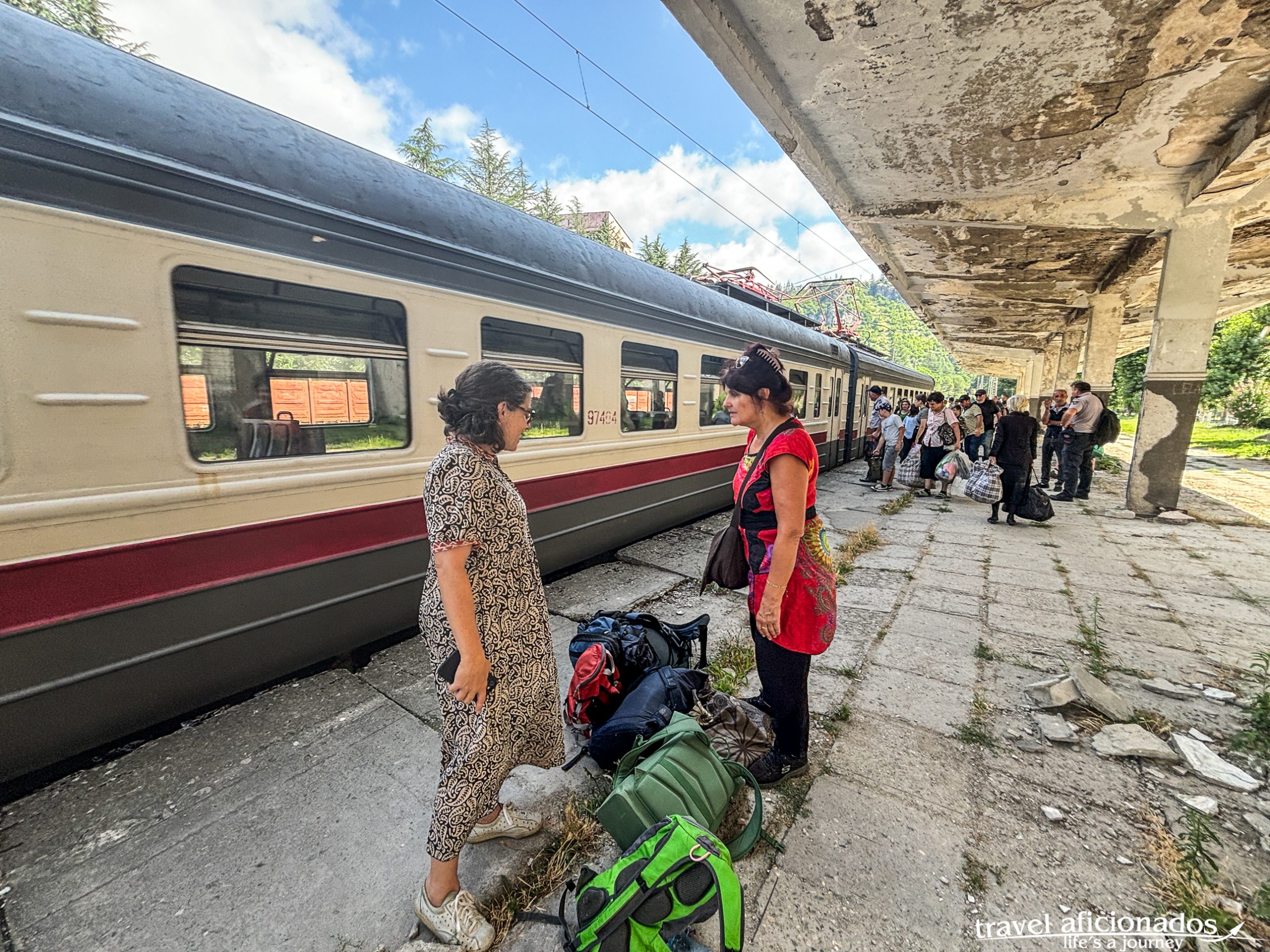
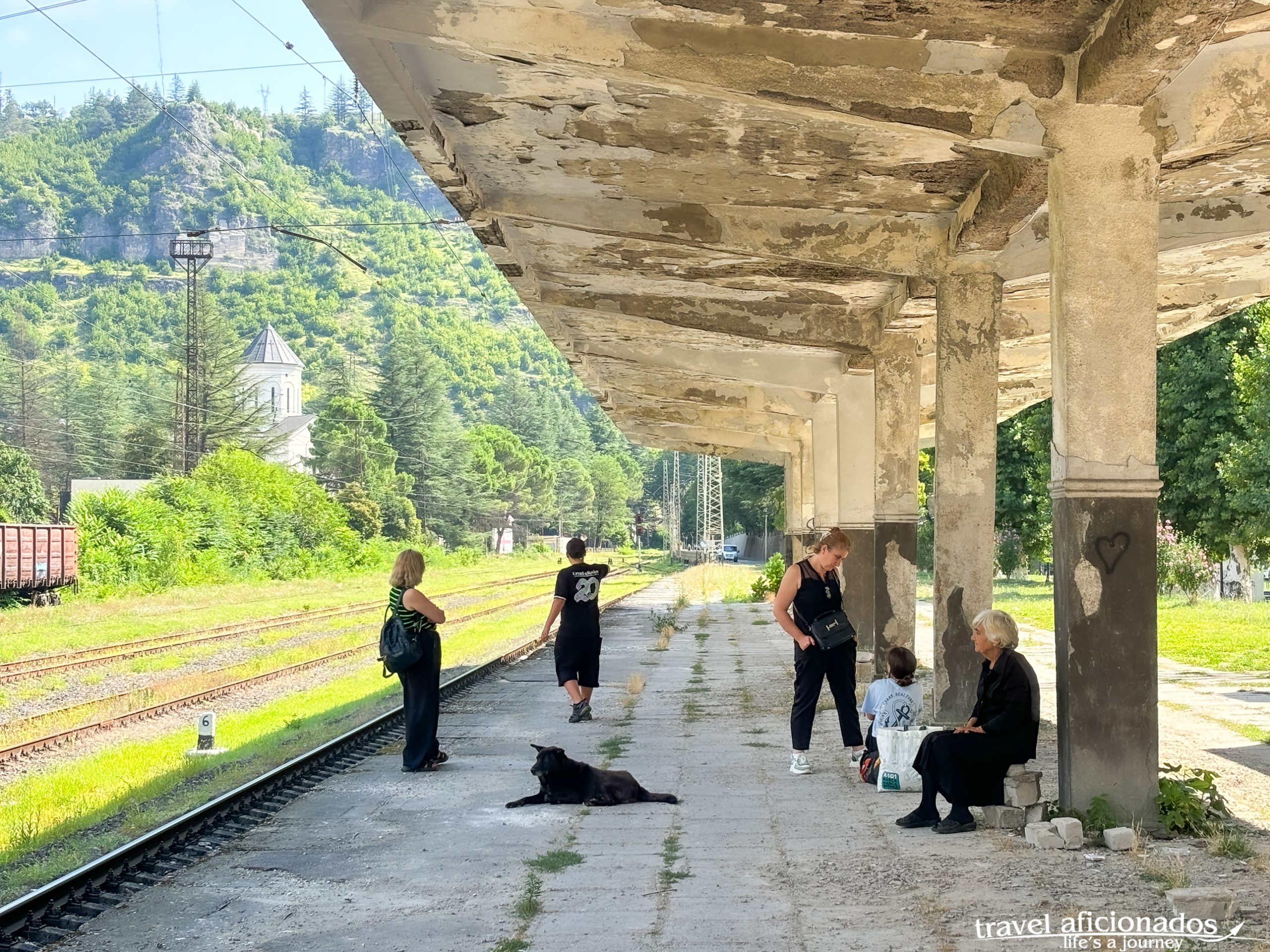
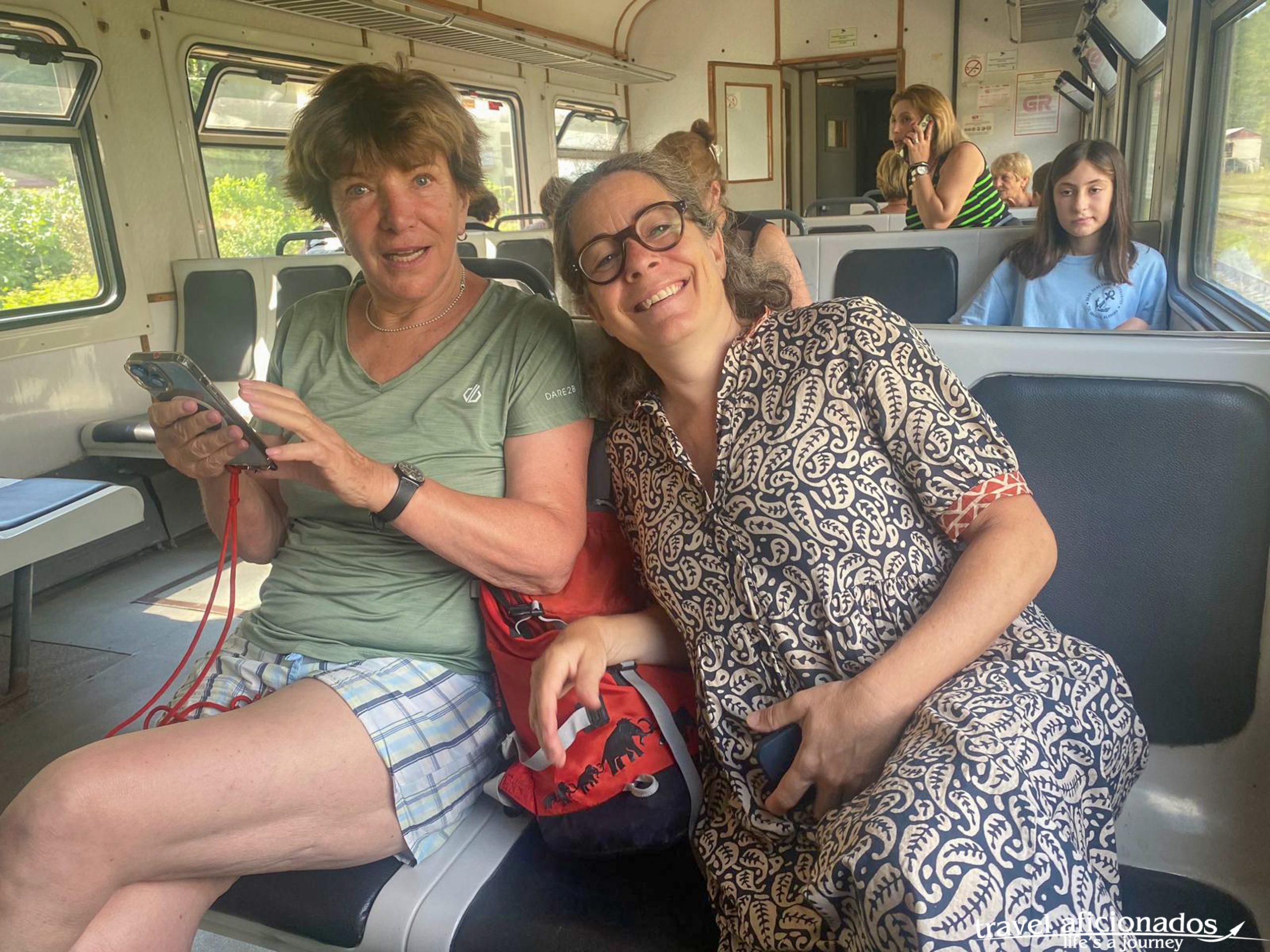
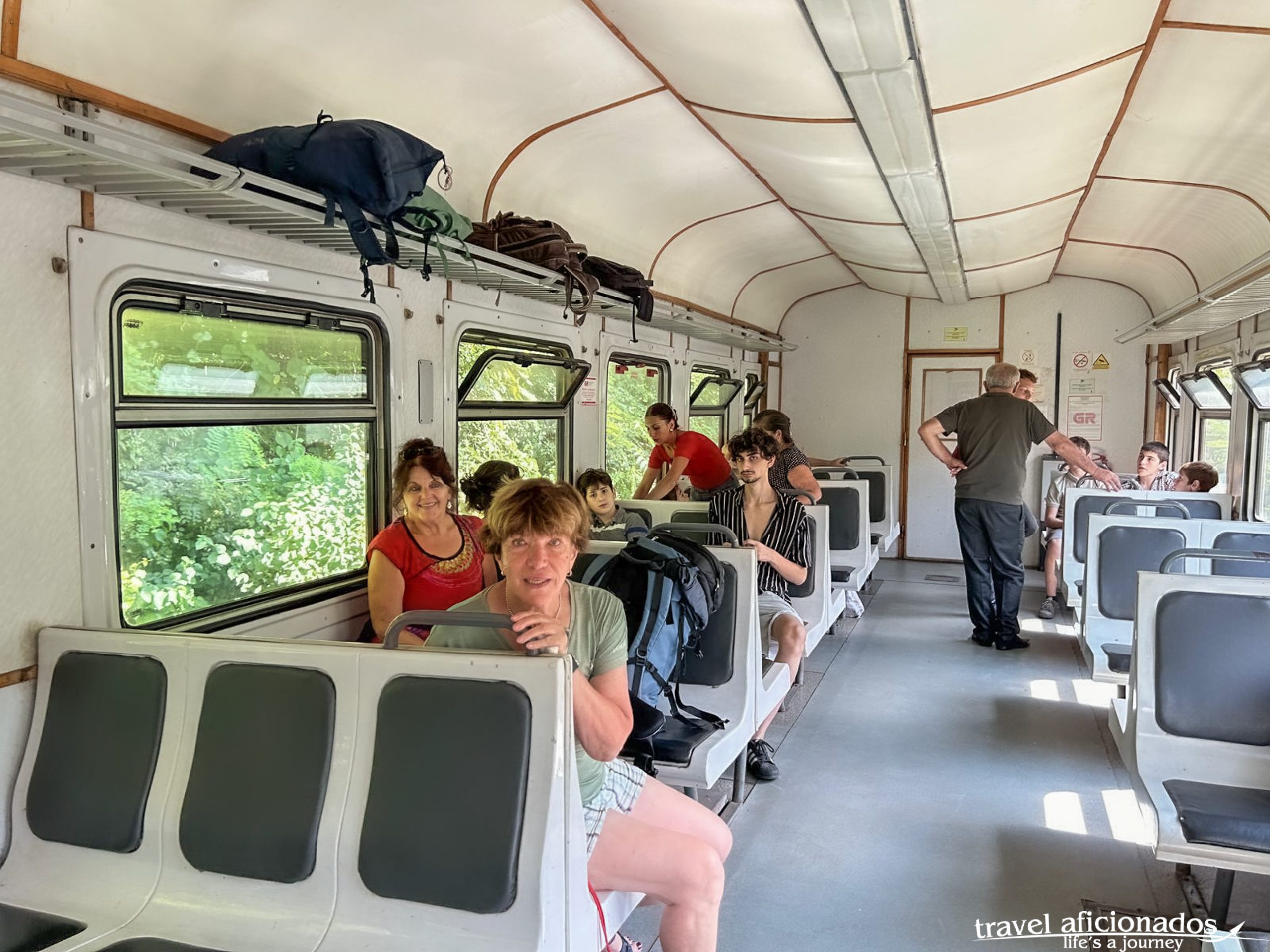




Leave a Reply